


Along with records broken and medals celebrated, competing at the Olympics is more often littered with narrow defeats, last-gasp errors and mental meltdowns that build true character and sportsmanship.
Paris Olympics' first gold medal winners Sheng Lihao and Huang Yuting, who bagged the 10m air rifle mixed team title, provided an exclusive interview to China Daily online show Tracking Success. The pair shared stories of their growth both inside and outside the shooting range, especially their tricks to remain calm and locked-in before pulling the trigger. Patience, focus and courage are among the qualities the pair said they needed to reach their golden targets. But, apart from their career goals, what other dreams they hold beyond the golden moment? To find out more, click the video.
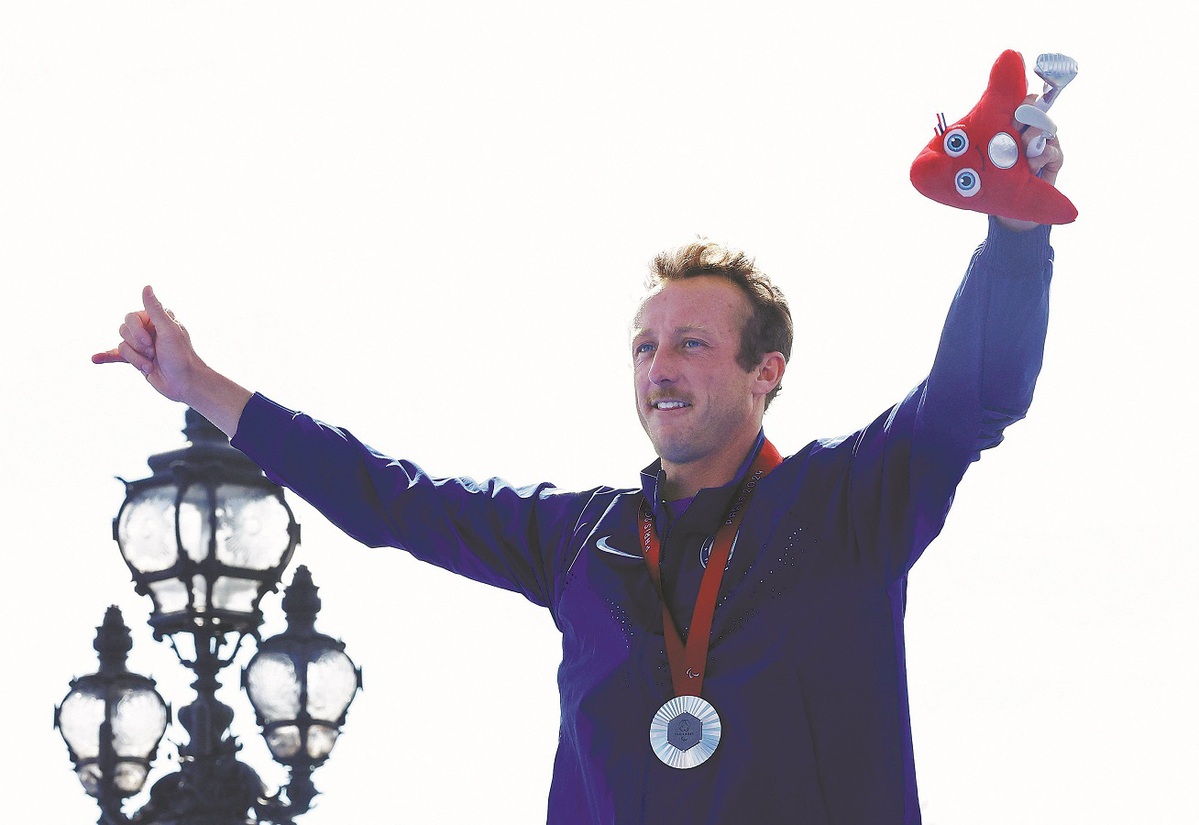
Some Paralympians live with a disability all their lives. Carson Clough is not one of those people.
Clough played lacrosse for North Carolina and knew nothing about the Paralympics until he was involved in a 2019 boating accident that required a below-the-knee amputation of his right leg.
He's one example of many among the 4,000-plus athletes at the 2024 Paris Paralympics who came to have a disability later in life, or only learned of the Paralympics when they were adults. For them, para sport has offered a new direction and sense of purpose to their lives.
In early 2022, with no previous knowledge of the sport, Clough was invited to apply to a talent ID camp hosted by USA Triathlon. It was there that he met his current coach, Mark Sortino, a long-time assistant coach for Team USA's Paralympic Triathlon team.
When he began training, Clough admits, jumping into an entirely new sport was a difficult process, and one that he made a lot harder on himself by thinking he knew more than he did.
"It was a case of thinking I knew a lot about the sport, and not doing much listening," Clough said.
"My coach, Mark Sortino, was obviously very experienced. He just kind of let me fall into my own trap and learn."
Monique Matthews' Paralympic career, meanwhile, began with a brochure.
Matthews had grown up a three-sport athlete, competing in softball, basketball and track throughout high school. Her plans at the time revolved around whether she should head to college for softball, or join the military.
While working a summer job at Circuit City, her plans went out the window when a warehouse accident cost Matthews her left foot.
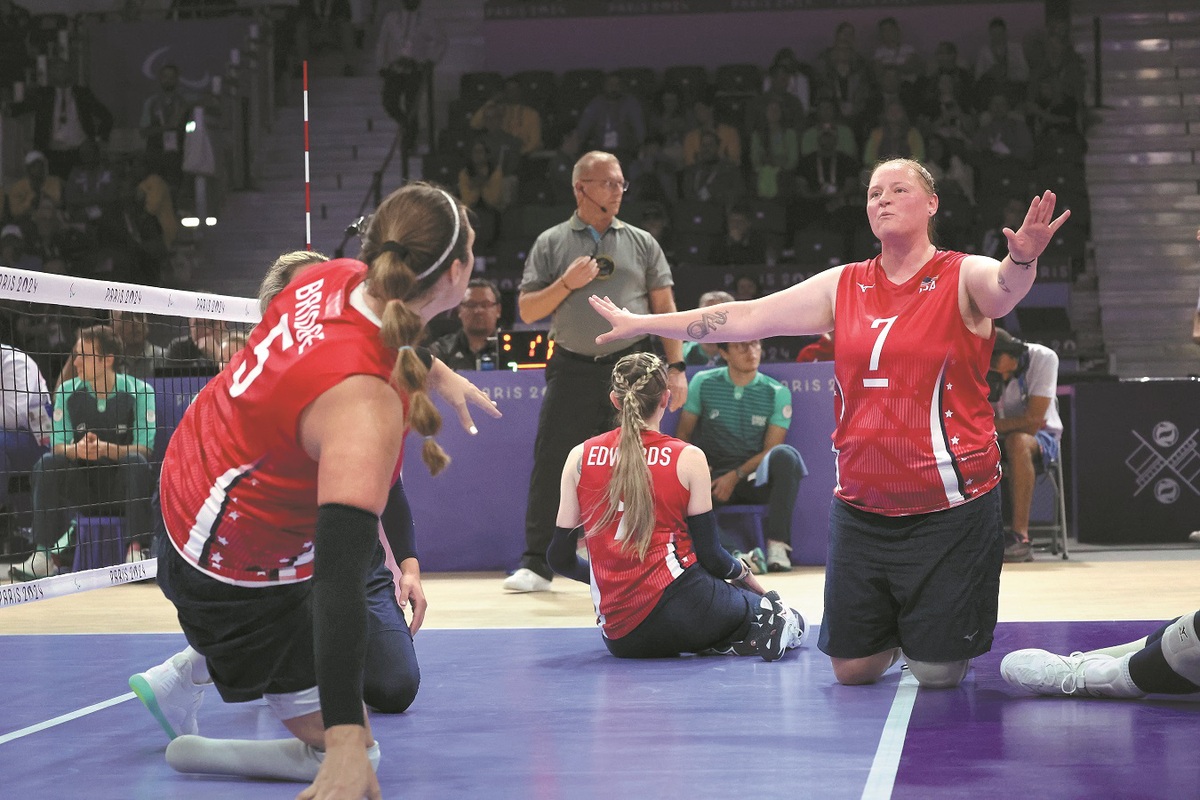
After the incident, Matthews took a two-year hiatus from sports, unsure where her life would go from there. That was until, by chance, she discovered a way that she might be able to compete again.
"After my amputation, I was looking for a new prosthetist, and I was up in Oklahoma City, and they actually had a brochure for sitting volleyball at the Scott Sabolich clinic I was visiting," said Matthews. "I e-mailed them and asked for a tryout, because I had never heard of the Paralympics before that."
She not only made the team, she's now got four Paralympic medals.
For Clough, after becoming more comfortable in the three aspects of triathlon, he quickly put his months of training to use.
In June 2022, he finished eighth at the World Triathlon Para Cup Besancon in France. This result set him up for a series of World Triathlon races that would eventually lead him to take first in the 2024 Americas Triathlon Para Championships in Miami in March, qualifying him for the Paralympics.
After this first intense run of competition, Clough centered his focus on putting in the work for Paris.
"For the past four months it's just been actually listening to everything (Sortino) says, because he, as well as my manager and all the coaches, they know what they're doing. I have no idea what I'm doing."
The result? Clough ended up medaling in his first ever Paralympic race, taking silver in the PTS4 class for athletes with affected coordination on one side, or the absence of limbs.
As he enjoys this accomplishment, he's already looking ahead to future competitions, including the 2028 Paralympics in Los Angeles.
"You know everybody says, 'it never gets easier, you only get faster,' but I'm gonna prove them wrong," he said "I'm gonna make it easier."
Like Clough, Matthews sees a message in their stories.
"A lot of times when you're injured, you just think you've got to find a new path, you can't do athletics anymore," she said, "but then people see this, and they're like 'Wow, I can continue to grow even better as an athlete'."
XINHUA
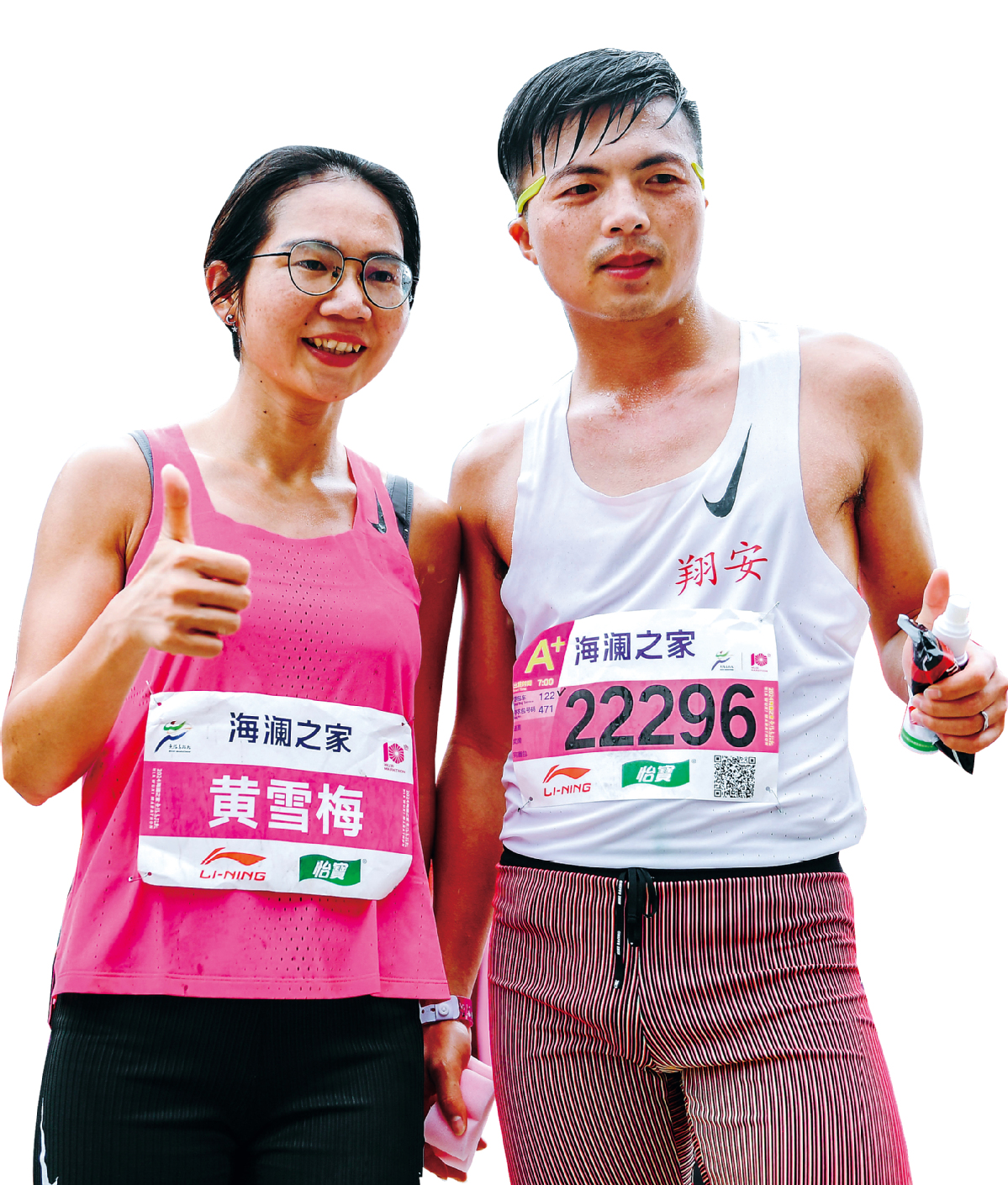
On the morning of Aug 10 in France, 32-year-old programmer Huang Xuemei, an amateur long-distance runner, stood near the finish line of the Paris 2024 Olympics marathon course, eager to witness the world's top distance runners as they completed the race.
"This was my first time seeing such incredible speed and passion in a marathon up close. It was truly overwhelming," she recalled.
"The finish line was within reach, and although exhausted, every runner dug deep to sprint the final hundred meters. I was moved by their determination," she added.
The enthusiastic cheers from the spectators lining the course also left a strong impression on her.
However, later that evening, when Huang became the first female runner to finish the 42.195-kilometer route in the public marathon at Paris 2024, she was so focused on her run that she didn't even notice her husband, Chen Zhiming, just a few meters away, cheering her on with shouts of "Come on, Xuemei!"
The Marathon Pour Tous (Marathon for All) event at Paris 2024 offered 20,024 amateur runners a once-in-a-lifetime opportunity to follow in the freshly laid footsteps of their Olympic heroes.
They could run the same course where the world's top athletes had competed just hours before — a demanding route with steep climbs and quad-crushing downhills that make it one of the most challenging marathon courses in the history of the Games.
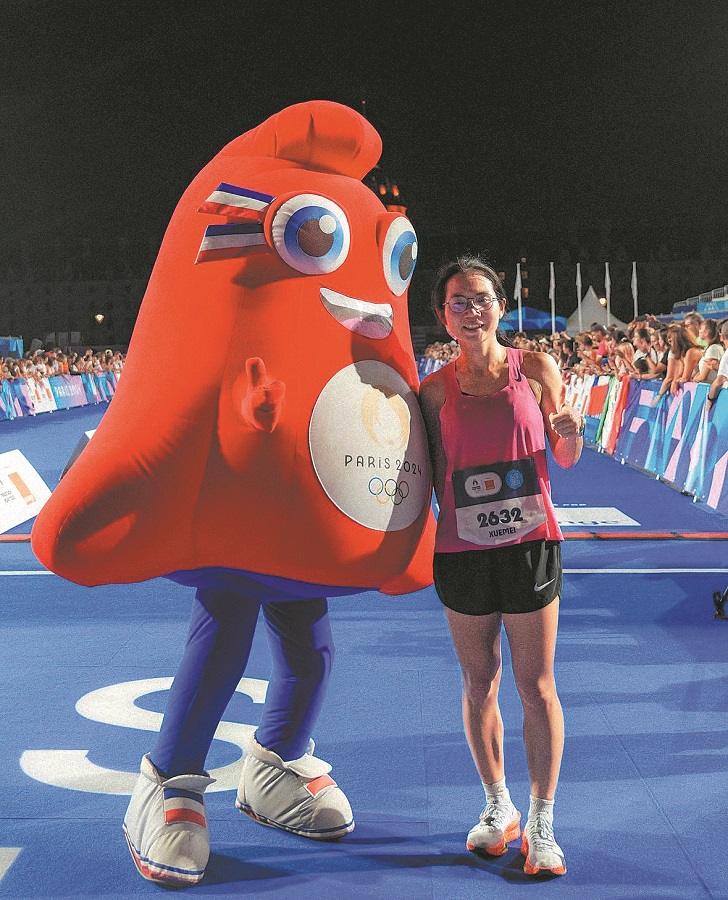
Huang completed the challenging route, which featured a total ascent of 436 meters, a descent of 438m, and a maximum hill gradient of 13.5 percent, in two hours, 41 minutes and three seconds.
Her personal best marathon time is 2:32:16, achieved at the 2023 Beijing Marathon last November. It was also the best performance by an amateur female runner in China.
Growing up in Zhaotong, in Southwest China's Yunnan province, Huang didn't discover her talent for long-distance running until she left her hometown to study computer science at Southeast University in Nanjing, Jiangsu province.
In 2011, during a 3,000m race at a school sports meet, her outstanding performance caught the attention of a coach.
This marked the beginning of her journey into long-distance running, as she started training in her spare time and occasionally participated in competitions.
In 2015, she represented the university in a student marathon league held in Xiamen, Fujian province, where she completed her first full marathon with a time of 4:01:36.
After graduation, she became a programmer at Xiamen International Bank and settled in the city.
To relieve work-related stress, she resumed running as a way to unwind.
"Every run leaves me feeling refreshed, as if the stress has been released, and I also feel a great sense of achievement," she said.
She was also an active competitor in a local 5km night running league in Xiamen, noting that: "Training for 5km races helped improve my marathon performance."
Her competitive spirit drove her to continually pursue faster times. In the 2019 Beijing Marathon, she finished in 2:50:00.
"In 2020, I really wanted to run 5km in under 18 minutes, but I couldn't manage it. I felt I was plateauing, so I decided to join a running club to train and interact with others," she explained.
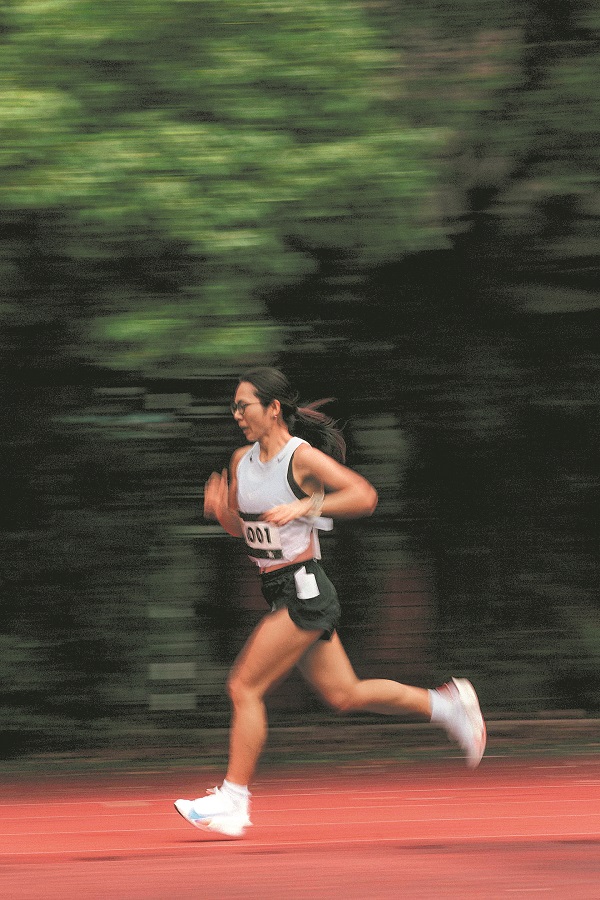
She joined a local running club in 2021, where she met her future partner, Chen.
One day, Huang offered a pair of new running shoes that didn't fit on the running club's WeChat group, asking if anyone needed them. Chen, who happened to wear the same size, and had just begun running, noticed the message and contacted Huang.
Their shared interest led to frequent running sessions together, and their relationship blossomed.
They soon became a couple and married earlier this year.
Now, the pair run over 500km per month. Chen, whose marathon PB is 2:32:30, helps work out their training plans.
To prepare for the public marathon in Paris, they began training in May. Although Chen did not compete, he ran alongside Huang in the summer heat as her dedicated pace setter.
"We both keep each other accountable for our training plans. She has a remarkable quality of not giving up," Chen said.
When asked what running has taught them, they both emphasized the importance of persistence.
The couple insist that their shared passion for running has kept them going and continues to push them further than they could have imagined.
"It's incredibly rewarding," Huang said.
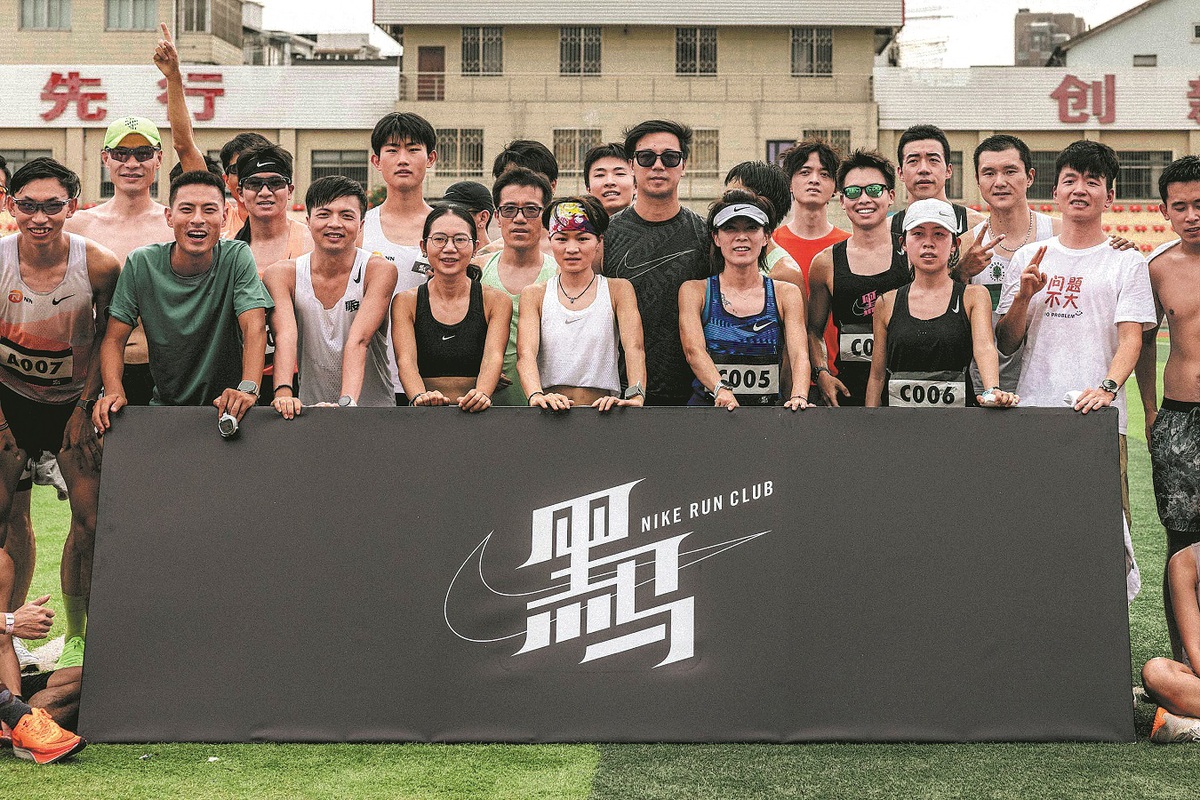
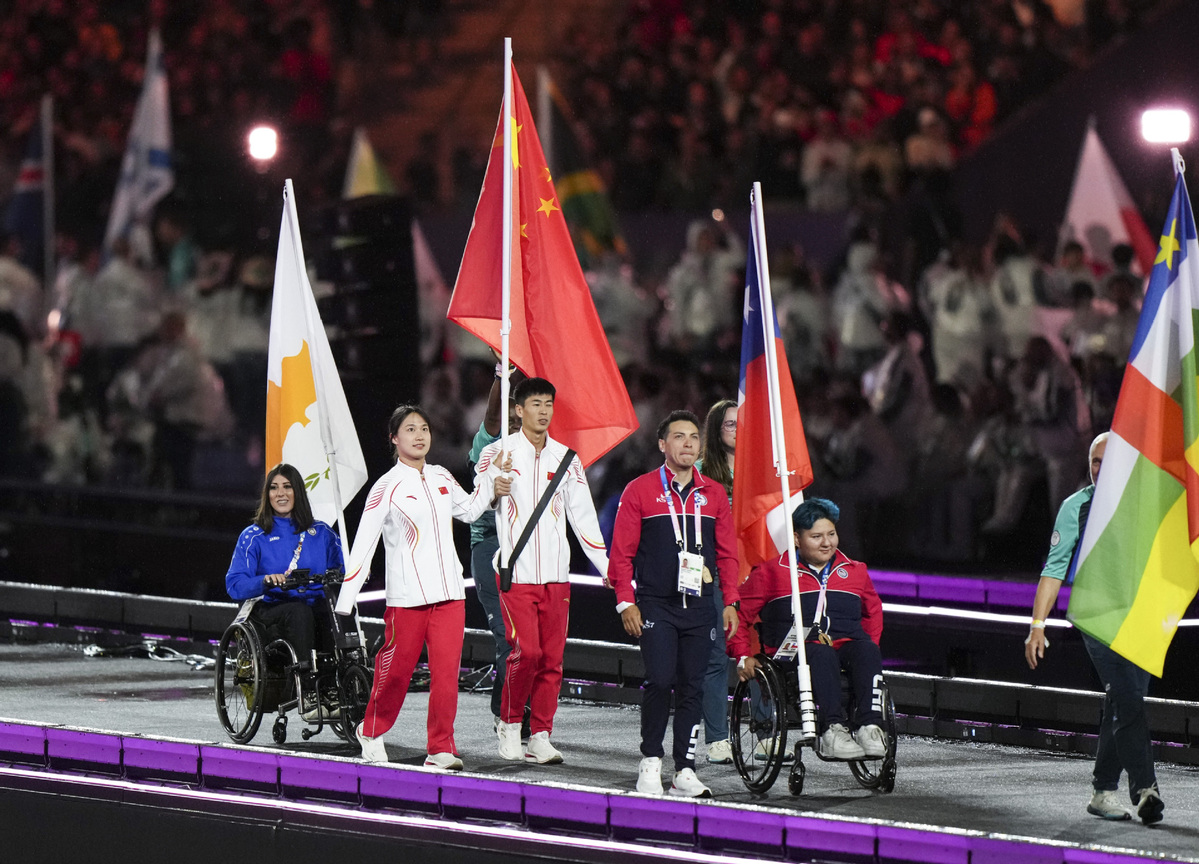
PARIS - Amid a festive atmosphere of lights and music, the Paris 2024 Paralympic Games came to a close on Sunday evening, honoring the para athletes who amazed audiences with their remarkable performances over the past 11 days.
Athletes and accompanying staff from nearly 170 National Paralympic Committees, including the Paralympic Refugee Team, participated in the closing ceremony at Stade de France, alongside 64,000 spectators.
During his speech at the closing ceremony, Tony Estanguet, President of the Paris 2024 Organizing Committee, urged the audience to stand and offer para athletes the "loudest, craziest, and longest" ovation.
"Every time you competed, more people joined the party. Every time you succeeded, the intensity grew...You changed how people see sport and how they see disability," Estanguet said.
"You have launched this Paralympic revolution, and now there is no turning back," he added.
International Paralympic Committee (IPC) President Andrew Parsons declared the official closing of the Paris 2024 Paralympic Games, delivering a speech focused on "inclusion." "The best Paralympic legacies are the ones that continue post-Games," Parsons noted.
"Beyond 12 days of sport, we must break down the barriers that exist in society. We must enable and empower persons with disabilities to excel outside of the field of play, in education, in employment, in entertainment, in government, in civil society - everywhere!"
The flags of the participating nations and the Paralympic Refugee Team were paraded in, accompanied by a performance from the band of the Republican Guard.
Jiang Yuyan, who carried the flag for the Chinese delegation, emerged as the most decorated athlete of the Games, winning seven gold medals and setting two world records in para swimming. She was joined by her fellow athlete, Di Dongdong, who won gold and set a world record in the men's long jump - T11 event in para athletics.
The six newly elected members of the IPC Athletes' Council were introduced, including Chinese para powerlifter Tan Yujiao, elected by her peers from among the 1,800 athletes participating in the Games.
After a stunning breakdance performance symbolizing the power of inclusion, the Paralympic flag was lowered and handed from Paris' mayor Anne Hidalgo to Los Angeles mayor Karen Bass, as attention shifted to the 2028 Games in Los Angeles.
A para athlete carried the Paralympic flame into the stadium, where it was ceremoniously extinguished after a brief relay. Meanwhile, the cauldron above the Jardin des Tuileries was also extinguished.
As the Games officially concluded, the celebrations began in earnest. To the beats of France's top DJs, people with and without disabilities danced together, turning the final night of the Games into a joyful celebration of inclusion.
A new era of inclusion is hoped to begin, as Parsons remarked, "What a Paralympic legacy this would be, not just for these athletes, but for the world's 1.3 billion persons with disabilities that they represent."
After 12 days of thrilling competition, China finished atop the medal tally for the sixth consecutive Paralympic Games, with a total of 220 medals - 94 golds, 76 silvers, and 50 bronzes.
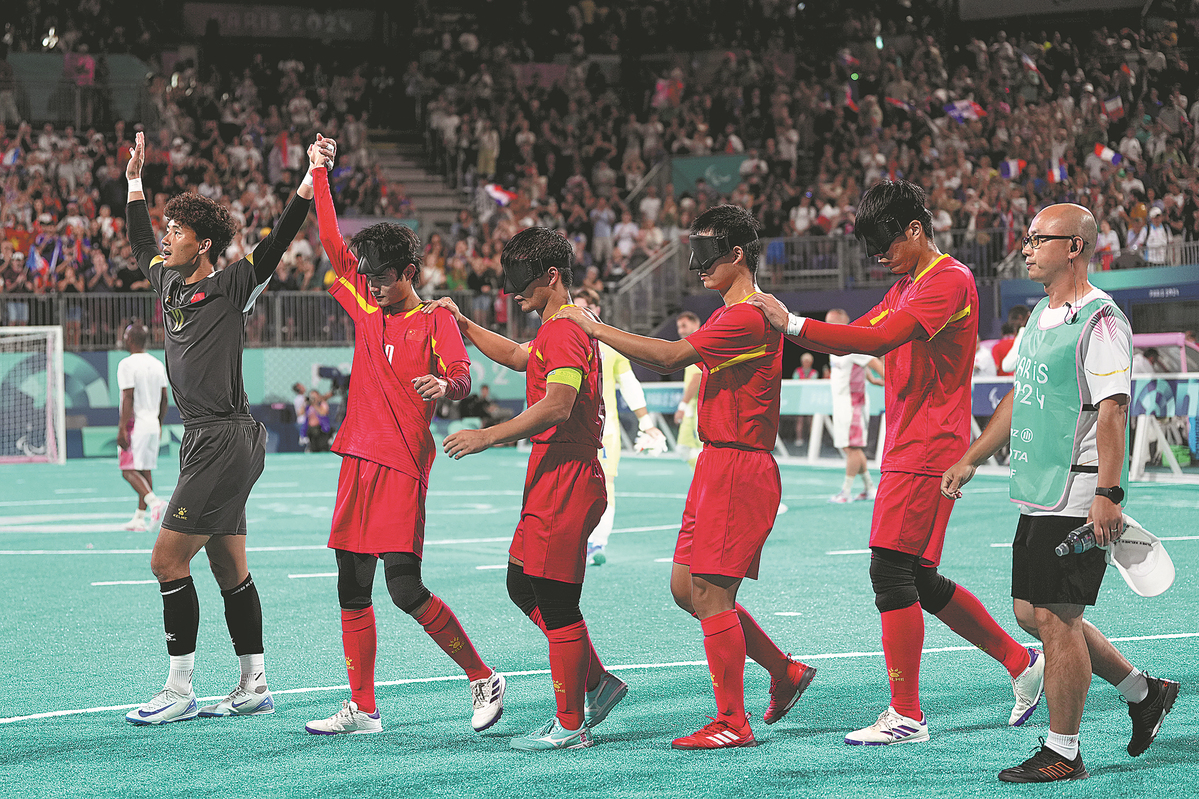
Trust and understanding is crucial for visually impaired athletes and their guides
With each call from his coach Wang Lin, Di Dongdong pushed harder, sprinting down the rain-soaked purple track at the Stade de France in Paris.
As the final command echoed, Di leaped, tracing a graceful arc through the air.
His jump of 6.85 meters on Aug 30 not only secured him the gold in the 2024 Paris Paralympics men's long jump T11, but also shattered a decade-old world record.
"Breaking the world record has always been my goal," Di said. "The heavy rain, slippery track and chilly temperatures could have been setbacks, but today I achieved what I set out to do. I'm overjoyed."
Di was quick to acknowledge the vital role his coach played in his success. "Coach Wang is like my eyes," Di said. "With him guiding me, it's as if I've regained my sight, allowing me to run fearlessly and make that leap."
On the Paralympic stage, visually impaired athletes rely on sighted guides — whether coaches, teammates or designated assistants — to compete.
These guides act as the athletes' "eyes" — either running alongside them, leading from the front or offering support from behind.
Off the track, they are more than just partners in sport; they are friends, often as close as family. Together, they pursue the shared dream of pushing past their limits and achieving greatness.
In the long jump T11 category at the Paris Paralympics, where athletes are entirely blind, every jump is a leap of faith. Di relies solely on the voice of Wang, who stands at the front of the takeoff board, calling out to guide him.
With his eyes covered by a blindfold, Di gauges his direction and pace through the rhythm of Wang's shouts, adjusting his stride and timing his leap with precision.
Wang explains that he uses the word "lai (come)" because it's the loudest and clearest command he can give.
"I don't have a set number of times I shout it," Wang said. "I just match his rhythm, adjusting the pace of my calls as he runs."
This flawless partnership is the result of years of trust and countless hours of practice. In the darkness of uncertainty, Di and Wang's connection has been honed over 14 years, a testament to their unwavering dedication and mutual understanding.
Long jump, a sport that demands explosive power and precise technique, presents an even greater challenge for visually impaired athletes.
For these competitors, the risk of injury is heightened, as they rely on guides to navigate the sand pit's position, depth and length.
"This skill is developed over many years," explained Wang, "While an able-bodied athlete might need around 1,000 jumps to perfect their technique, a blind athlete can require up to 10,000 to achieve the same level of proficiency."
Wang elaborated: "Imagine trying to walk blindfolded — you'd likely struggle to maintain a straight line. Di's mastery of the long jump took five years of intensive training. His dedication is extraordinary."
In addition to the long jump, Di also took bronze in the men's 100m T11 and contested the men's 400m T11 track events at the Paris Games. He acknowledges that these races present their own set of challenges, particularly in overcoming mental barriers.
"Initially, I lacked focus and confidence. It took rigorous and consistent training to build my skills and self-assurance," Di said.
"I train for four to five hours a day for both events."
Even though Di has secured gold medals at the past two Paralympic Games, the 31-year-old athlete believes he still has more to offer, and Wang remains steadfast in his support.
"As long as Dongdong is training, I will be there to guide him," Wang said. "Our partnership will continue."
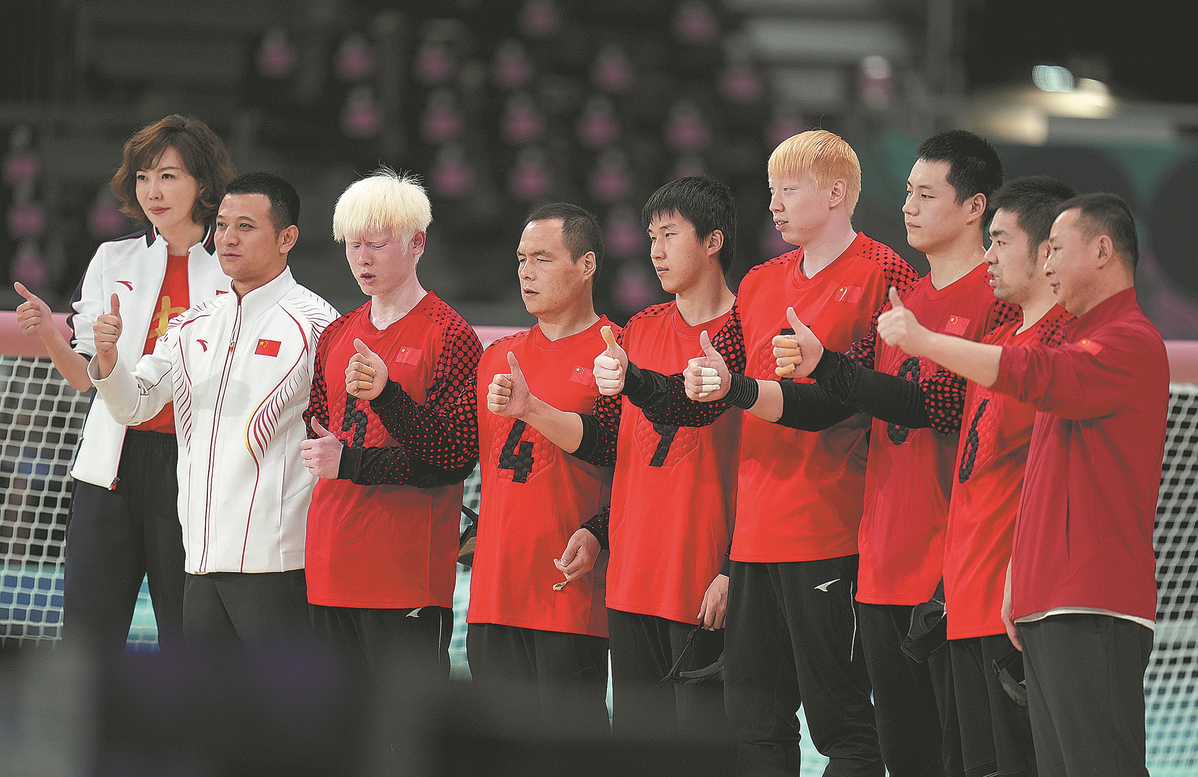
On the ball
Blind soccer presents a unique challenge, where teamwork and communication extend beyond the usual dynamics of the sport.
On the pitch, while coaches issue directional commands from the sidelines, sighted goalkeepers play a dual role. Not only do they protect the goal, but they also serve as vital navigators, helping their teammates with verbal cues to "listen and locate" both the ball and their opponents.
Of China's 10-man blind soccer squad competing in Paris, two are sighted goalkeepers. One of them, Wu Limin, has been playing for Team China for more than a decade. Over that time he has built a deep bond with the players, through years of shared experience and trust.
"I have learned so much from them," Wu reflected. "Especially their relentless commitment and their ability to overcome adversity."
During matches, Wu anchors the defense, while off the field, he leads his teammates, literally, with his guiding presence. As he walks in front, his teammates follow closely, each with one hand placed on the shoulder of the person ahead. "On the field, I am their last line of defense; off the field, I am their guide," Wu said.
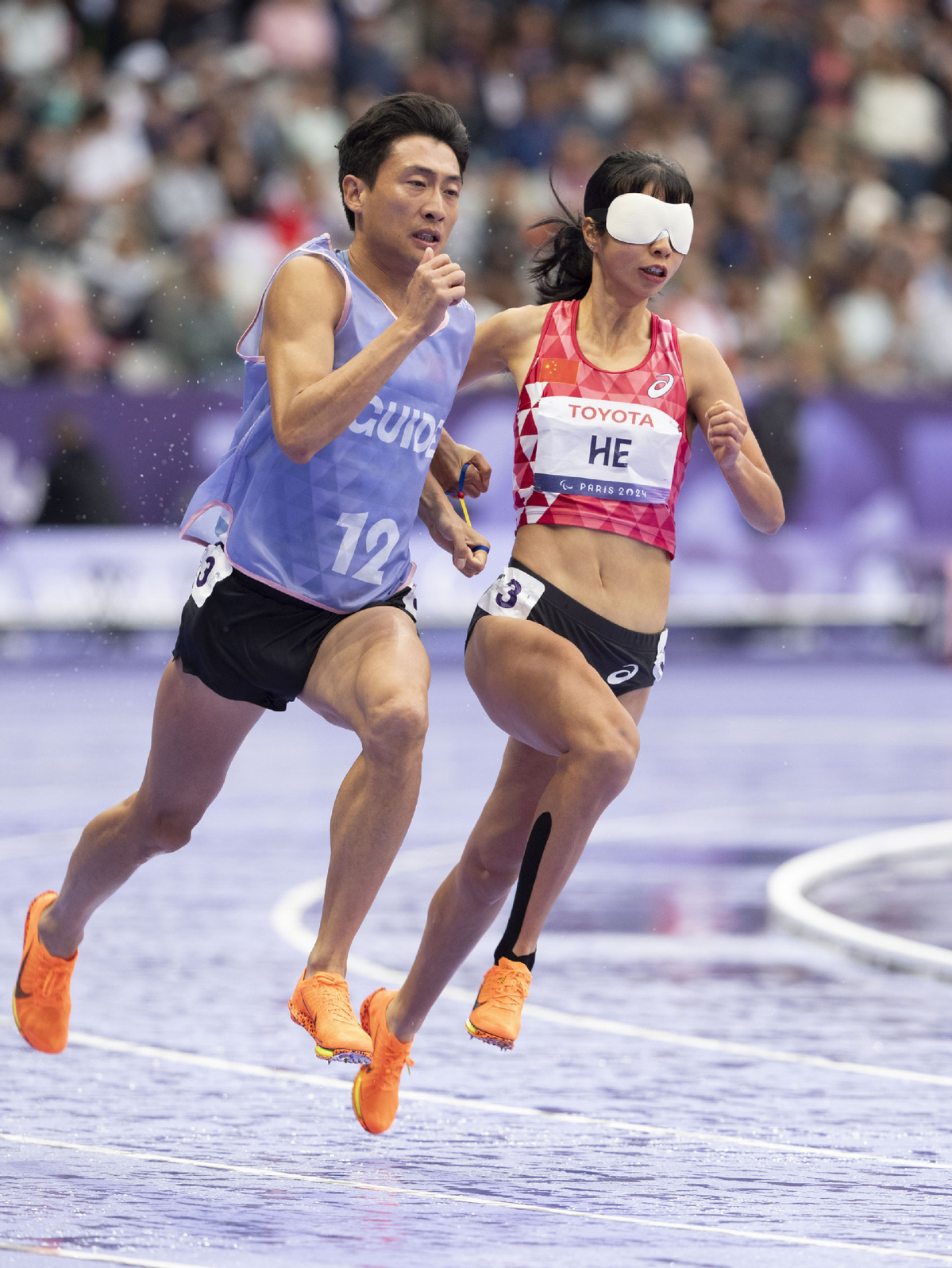
Side by side
A 10-centimeter rope bridges the gap between He Shanshan and her guide, You Junjie. Prior to a race, You meticulously adjusts the starting blocks and positions them to maximize He's comfort. As the race unfolds, the pair run in unison, their strides fully synchronized.
While He could not see the purple track of the Stade de France during the women's 1,500m T11 final on Sept 2, she was able to negotiate the course by relying entirely on her guide. With You's steady encouragement, they surged toward the finish line together, ultimately stepping onto the podium in second place for a silver medal. Earlier, they had also secured a bronze in the women's 400m T11 in the same manner.
Despite only being a team for just over a year, 25-year-old He and 28-year-old You have developed a bond akin to that of family. "I consider her like a younger sister," You said. "I hope she continues to grow and achieve even more through these Paralympic Games."
Once a promising middle-distance runner himself, You retired from professional athletics in 2021. By early 2023, faced with an uncertain career path, You found unexpected clarity in his new role as a guide for He.
Their partnership began with a breakthrough: Within a month of training together, He surpassed her personal best, sparking a newfound confidence in both runners. To focus on guiding He at the Paralympics, You chose to postpone his graduate studies at Tsinghua University for a year.
While You has never competed on the Olympic stage in his own event, the 1,500m, by supporting He's Paralympic quest in Paris, in some small way, You has realized his own aspirations.
A silver medalist in the men's 1,500m at the 2021 National Games, You's role as a guide has rekindled his passion for running and he plans to return to competitive racing next year.
For He, born blind, running is a formidable challenge. Mastering new techniques requires relentless repetition, as she cannot visualize the movements.
"I might need to practice a new technique hundreds of times before I get it right, but You is never tired of teaching me," He said. "I trust him deeply, which allows me to run with confidence."
She noted that this year has greatly increased her self-assurance and courage.
"Although I cannot see this vibrant world, Brother You helps me ensure the world sees us," He added.

From Athens 2004 to Paris 2024, China's Paralympic delegation has maintained its dominance in six consecutive Summer Games, winning the highest number of gold medals each time and retaining the top spot in the overall medal tally.
As the flame of this summer's Paralympic Games flickered out on Sunday in the French capital, signaling the end of more than 10 days of intense competition, Team China concluded its campaign with 94 gold, 76 silver and 50 bronze medals, setting multiple world records across sports including swimming, athletics and cycling.
The Central Committee of the Communist Party of China and the State Council sent a congratulatory message to the Chinese Paralympic delegation for its outstanding performance in Paris.
Team China's performance was hailed as a "dual success" in both competition and sportsmanship, bringing honor to the nation. The message conveyed heartfelt congratulations and warm regards from the Party and the government.
On the field, Chinese athletes demonstrated exceptional strength and determination, while off the field, they carried themselves with confidence and grace.
At the closing ceremony, swimmer Jiang Yuyan and track and field athlete Di Dongdong served as flag bearers for the Chinese delegation. The night before, at Paris La Defense Arena, 19-year-old Jiang shattered the world record in the women's 100-meter backstroke S6 final with a time of 1:19.44, claiming her seventh gold medal at the Paris Paralympics.
"Standing on that podium, watching the flag rise and hearing the (national) anthem play because of my own hard work — it's a feeling of pride and fulfillment that's hard to describe," Jiang said. "I often sing the anthem as loud as I can, I wonder if you can hear me."
The Chinese delegation reaffirmed its dominance in swimming, athletics, table tennis, fencing and badminton, securing 22 gold medals in swimming and 21 in athletics.
Paralympic pool prodigy Guo Jincheng, who is easily recognizable with his shaved head and no swimming cap, competed in nine events, bringing home four gold and two silver medals.
In the mixed 4x50m medley relay 20 points final on Thursday night, Guo's powerful leg kicks — described as "turbocharged motors" by the media — propelled him to the finish line, helping Team China break the world record and claim gold.
"Even though I was exhausted, my teammates entrusted me with the final leg, and I didn't want to let them down. I just wanted to give it my all," Guo said.
"There are no shortcuts to improving performance. ... It takes persistent training, day in and day out, to keep pushing your boundaries and becoming your own hero," he added.
The Chinese badminton team didn't disappoint fans either, winning nine gold medals, two silver medals and one bronze medal in the 14 out of 16 disciplines it participated in, finishing on the top of the chart.
Badminton made its Paralympic debut at the Tokyo Games in 2020, when the Chinese team won five gold, three silver and two bronze medals.
Zhang Xianming, coach of the team, said that Tokyo provided valuable competition experience. "We've since focused on analyzing events more closely and adjusting our training plans accordingly, which has helped us achieve even better results in Paris."
Beyond the competition, China's Paralympic athletes forged lasting friendships with their peers from around the world, creating touching moments that transcended sport.
After receiving her gold medal, Chinese powerlifter Cui Zhe helped wheelchair-bound first runner-up Esther Nworgu of Nigeria get off the stage. Meanwhile, Chinese powerlifting champion in the 67-kilogram weight category Tan Yujiao shared a heartwarming moment on the podium, kissing the cheeks of her fellow medalists from Egypt and Brazil.
After the women's 200m T36 final, China's Shi Yiting and New Zealand's Danielle Aitchison embraced warmly, celebrating each other's success in respectively clinching gold and silver.
"I was completely disoriented after crossing the finish line and collapsed on Danielle, who was nearest to me," Shi said. "I might have rested there for a minute, and I faintly heard her congratulating me."
Moments later, as Shi was being interviewed, Aitchison gave her another warm hug as she passed by.
Despite winning this event at both Rio 2016 and Tokyo, Shi acknowledged Aitchison's rapid improvement. "I lost to Danielle in May, and she has since broken the world record with a time of 27.47 seconds," Shi said. "I knew that to win, I had to give everything I had."
"We might be rivals on the track, but off it, we have a strong friendship. No matter who wins, the other is always genuinely pleased," Shi added.
BEIJING -- China's central authorities sent a congratulatory message to the country's Paralympic delegation on Sunday for their accomplishments and sportsmanship at the 2024 Paris Paralympic Games.
"You have won glory for our country and people, and we extend warm congratulations and heartfelt compliments to you," read a message jointly sent by the Communist Party of China (CPC) Central Committee and the State Council, China's cabinet.
China claimed 94 gold, 76 silver and 50 bronze medals at the Paris Paralympics, topping the medal table for the sixth consecutive time.
"You have marked the new heights of our country's para-sports with your high-spirited morale, unyielding spirit and excellent performances, and demonstrated the new development achievements of our country's cause of persons with disabilities in the new era," read the message.
"You have vigorously promoted the Chinese sports spirit and the Paralympic spirit, challenging the limits, striving for excellence, and showcasing your self-confidence, optimism, openness and friendliness. In doing so, you have demonstrated China's spirit and image to the world," added the message.
The CPC Central Committee and the State Council called on the athletes to continue to carry forward the glorious tradition of para-sports to strive for athletic excellence, encourage persons with disabilities to exercise to achieve their dreams, and inspire all aspects of society to pursue a happy and fulfilling life.
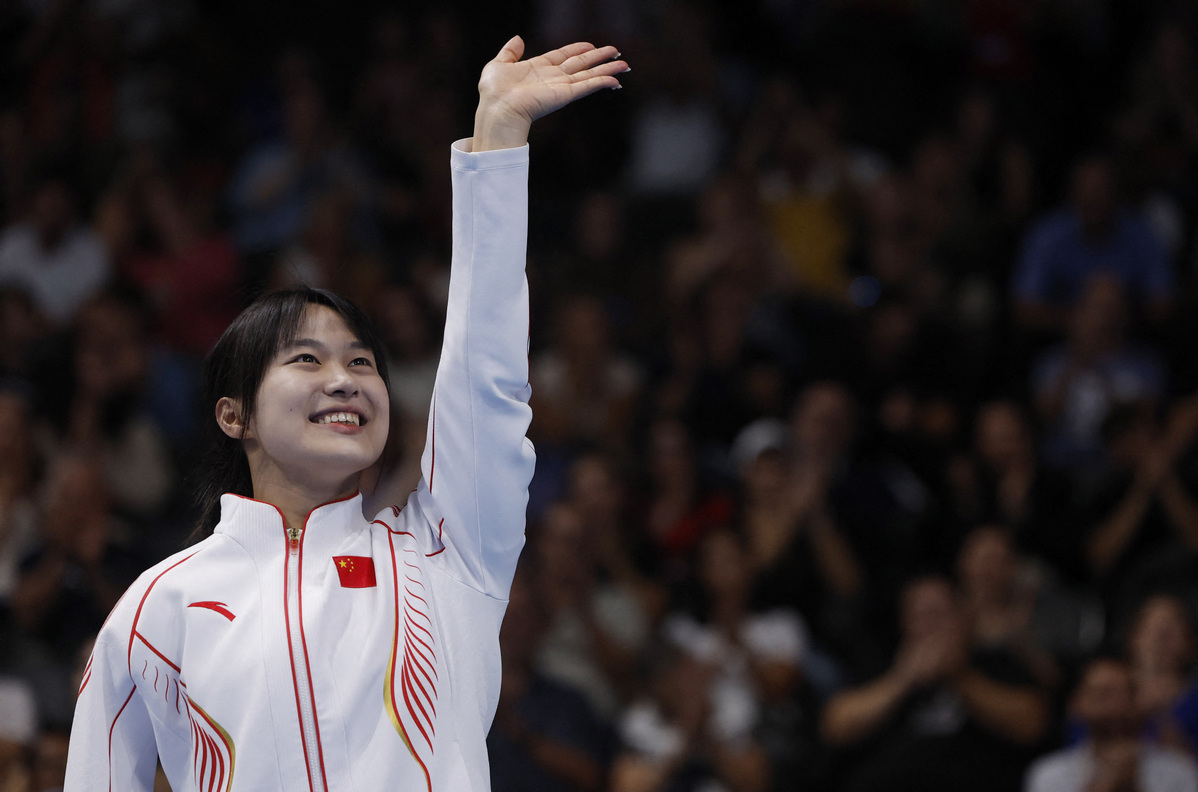
PARIS -- Chinese para swimmer Jiang Yuyan claimed her fourth gold in Paris by breaking the world record in the women's 100m freestyle S7 at the Paralympic Games on Wednesday.
Jiang qualified for the final with the third-fastest time in the heats, but she stepped up in the evening to secure the title with a time of 1:09.68.
The previous world record of 1:10.86 was also set by the 19-year-old last year.
"I am excited. It's amazing. I didn't think I could do this, but I did it," said Jiang, who has won four golds and still has two more events to go.
Jiang, who won two gold medals, one silver, and one bronze at the Tokyo Paralympic Games three years ago, lost her right arm and leg after a car accident when she was four years old.
"I have never felt sorry for myself," said Jiang. "I have never felt there was any difficult time in my life."
Also in the pool, Jessica Long from the United States claimed her 17th Paralympic title by winning the women's 400m freestyle S8 in 4:48.74.
The 32-year-old has won gold at every Games since Athens 2004 when she was 12 and now has 30 Paralympic medals.
"This is my sixth Paralympics that I've proven that I can win a gold medal. I just tried to channel and put my head down, and I was like: 'You know what? This last 50m might hurt, but not doing well might hurt even more,'" she said.
At Stade de France, Raoua Tlili from Tunisia won the women's discus F41 with a season-best throw of 36.55 meters. Five days ago, she took the gold in shot-put with a throw of 10.40 meters.
The 34-year-old has achieved the shot put-discuss double at three consecutive Games.
In track cycling, British Sarah Storey won the women's C5 individual time trial in 20 minutes 22.15 seconds, which is her 18th Paralympic gold, while Oksana Masters from the United States took her 18th Paralympic medal after winning the women's H4-5 individual time trial in 23:45.20.
After Day 7, China top the medal tally with 62 golds and 135 medals in total, while Britain and the United States sit on second and third respectively with 33 and 25 gold medals.
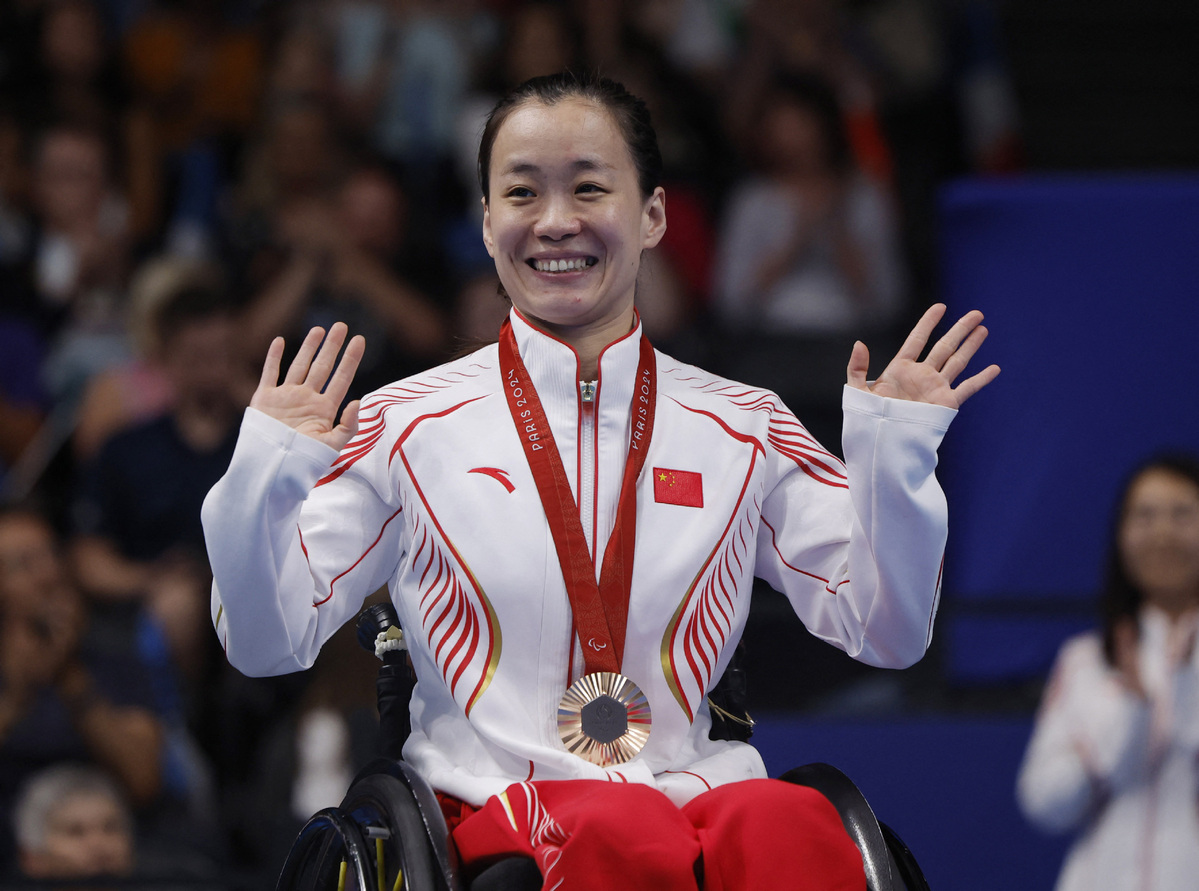
PARIS -- Liu Yu of China pumped her fists in the air and yelled after finishing third in the women's 50m backstroke S5 final at the Paris Paralympic Games on Tuesday.
From being an orphan to becoming a multi-medal winner at the Paralympic Games, Liu was overjoyed by the highlights of her life. However, being a champion had never been her main goal.
"My biggest dream is to have a family of my own and I have fulfilled it long before," she said. "But in the meantime, I want to make some achievements to show my gratitude to my country."
Liu is unsure if she is 35 years old. When she was taken to the orphanage in Mudanjiang, Heilongjiang Province, the staff estimated she was about two years old and registered her birthday as June 1, Children's Day.
"As I could not walk, the older boys and girls in the orphanage would carry me on their backs to school," Liu recalled about her childhood. "I received surgeries for my legs a few times, all sponsored by our country or some kind people. I remembered once when I was at hospital, an elderly lady bought me a cellphone... There were so many things like that."
At 15, Liu had the opportunity to learn how to swim and immediately showed her talent. "I could float on water and was not scared at all. I felt I belonged to the pool and really enjoyed being in the water."
She loved swimming, but she was more eager to study. "At that time, I was not sure why I should keep swimming. I thought knowledge could change one's life and broaden one's mind, so I wanted to focus on my study," Liu explained, which is why she stopped swimming training in high school.
Liu became the first college student from her orphanage and met her future husband in college.
She didn't ask for much, but she wanted to pursue self-improvement. "There won't be many people who could compete at the highest level. And I really want to do something for my country in return."
Liu resumed swimming training in 2014, admitting that it was a painful journey back to the pool.
"To be competitive, I have to spend more time on training. All I can do is work harder and harder," said Liu.
At the Tokyo Games three years ago, Liu reached her peak with two gold medals and set a world record. She felt guilty that she couldn't be with her husband and daughter very often, but both of them supported her decision to compete in one more Paralympics.
"My daughter is so proud of me. Whenever she has the chance, she would tell others that I'm her role model," said Liu.
Before Tuesday's final, Liu had finished fourth in three events. "I did feel disappointed. I was so close to the podium."
She wasn't sure how well she could perform in her last event, but her teammates Lu Dong and He Shenggao gave her a pep talk.
"Both of them have better results than me, but they encouraged me by saying 'let's have three national flags at the medal ceremony,'" revealed Liu.
"So in the last five meters of the race, I was just thinking of three national flags. My hand hit the wall so heavily that it still hurts," said Liu after following Lu and He to take the bronze.
"It's my last Paralympic Games," said Liu. "I couldn't be happier."

After a day of rain, the purple track at the Stade de France, still glistening with moisture, set the stage for a series of record-breaking performances on the opening night of athletics at the Paris Paralympics.
China's Di Dongdong broke a decade-old world record while successfully defending his men's long jump T11 title. His leap of 6.85 meters surpassed the previous record of 6.73m, set by Lex Gillette of the United States in 2014.
In the women's club throw F32, Poland's Roza Kozakowska obliterated her own world record by more than two meters, with a 31.30m throw on her first attempt.
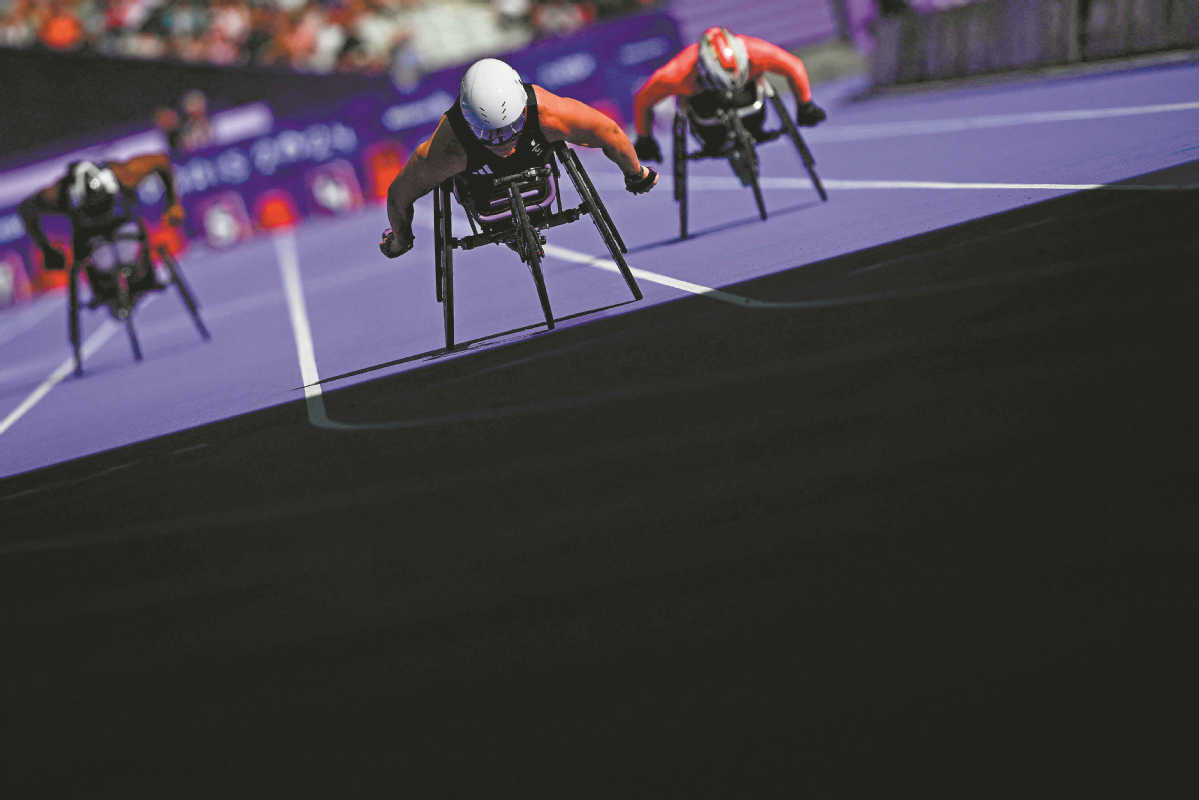
On the other side of the venue, Brazil's Petrucio Ferreira dos Santos celebrated with a triumphant backward somersault after cementing his status as the fastest Paralympic sprinter on the planet. Defying the rain-soaked conditions, he won the men's 100m T47 for the third consecutive Games, crossing the finish line in 10.68 seconds.
At the Paris Paralympics, athletes from around the world are showcasing an extraordinary spirit of resilience and determination. For the seasoned veterans, in particular, it is this relentless pursuit of excellence that makes them shine so brightly on the global stage.
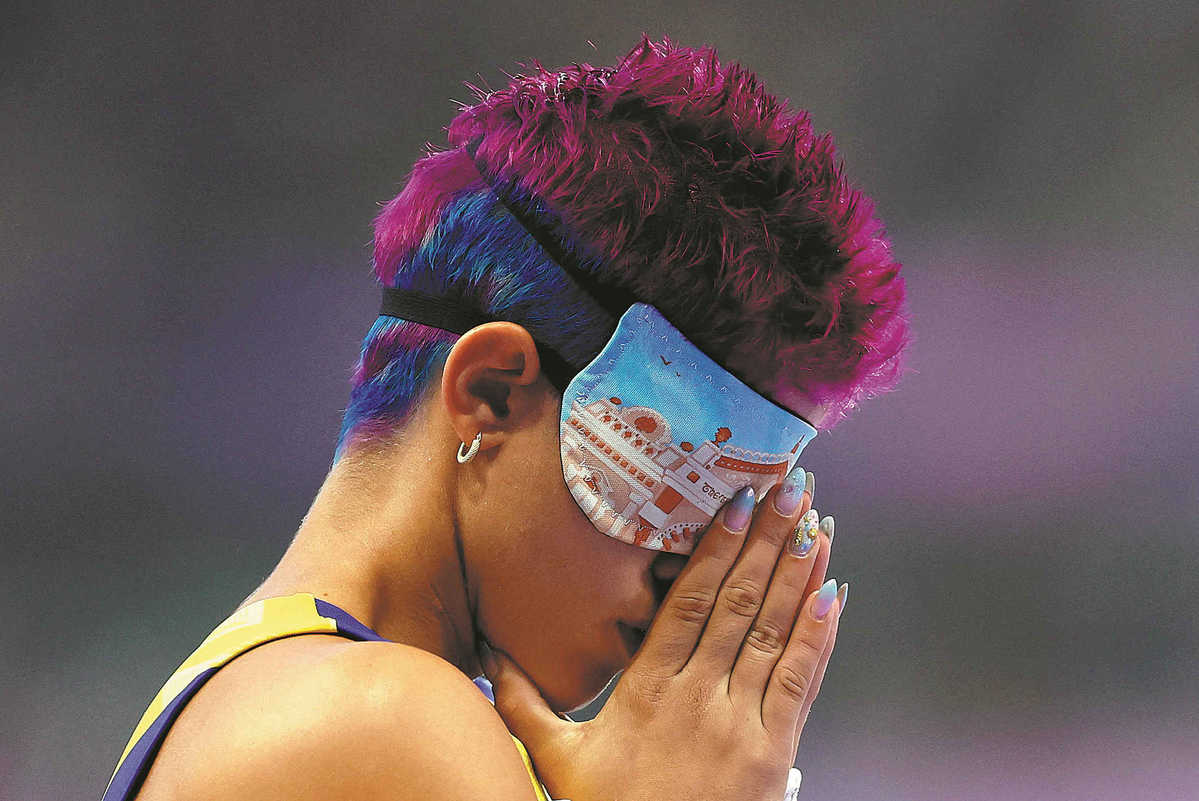
Jan Riapos from Slovakia, 55, became one of the Paralympic Games' oldest gold medalists as he and partner Peter Lovas won the men's doubles table tennis MD4 final at the South Paris Arena on Saturday.
"I felt peace inside," said Riapos, who is also chairperson of the Slovakia Paralympic Committee, and has become the most decorated Slovak Olympic or Paralympic athlete. "Peace in my heart, peace in my soul, peace in my body. I felt strong."
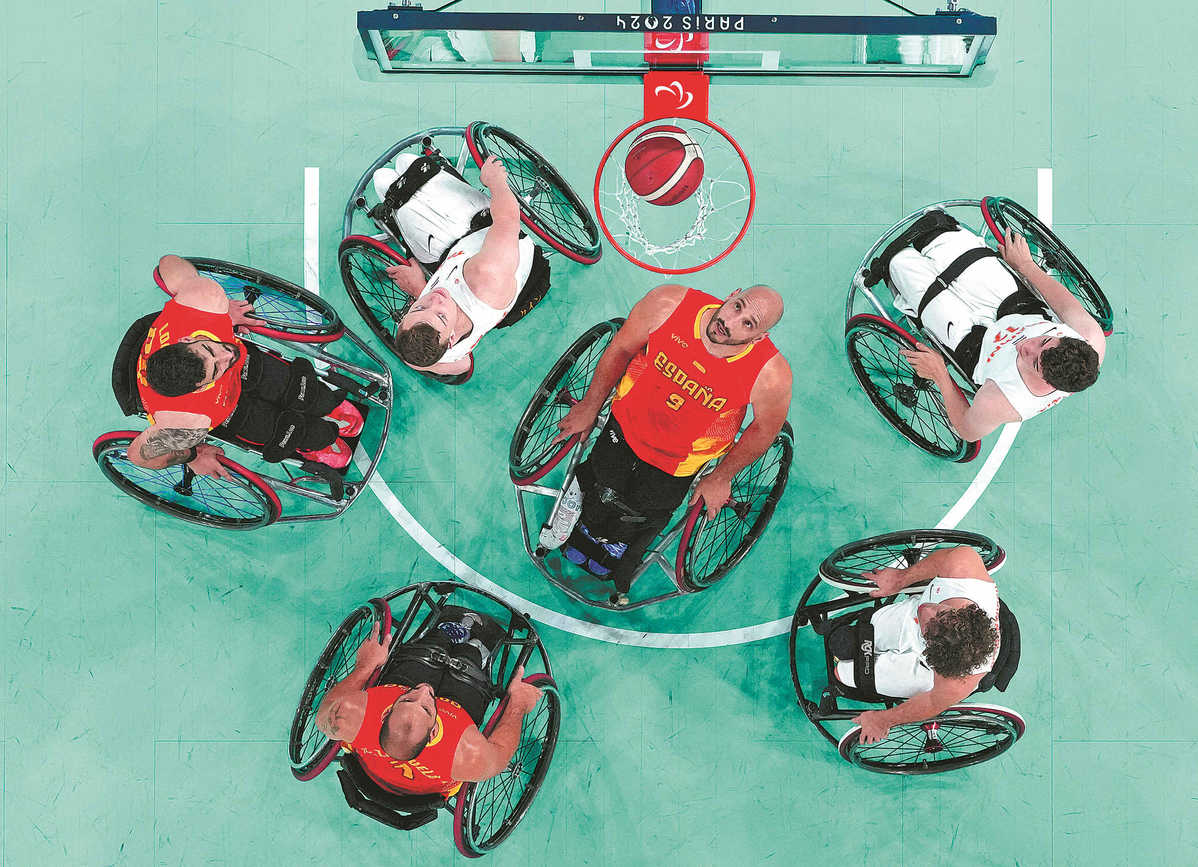
It took 60-year-old Thomas Wandschneider from Germany 103 minutes to beat China's 24-year-old Yang Tong 2-1 in a para badminton men's singles WH1 match at La Chapelle Arena on Saturday — the longest badminton match in Paralympic Games history.
"For more than 20 years, I have been doing a lot of physical training and I always give 100 percent and more," he said. "I did a medical test five weeks ago and the doctor said, 'you have a heart like a 40-year-old'. I'm (almost)61. It's crazy."
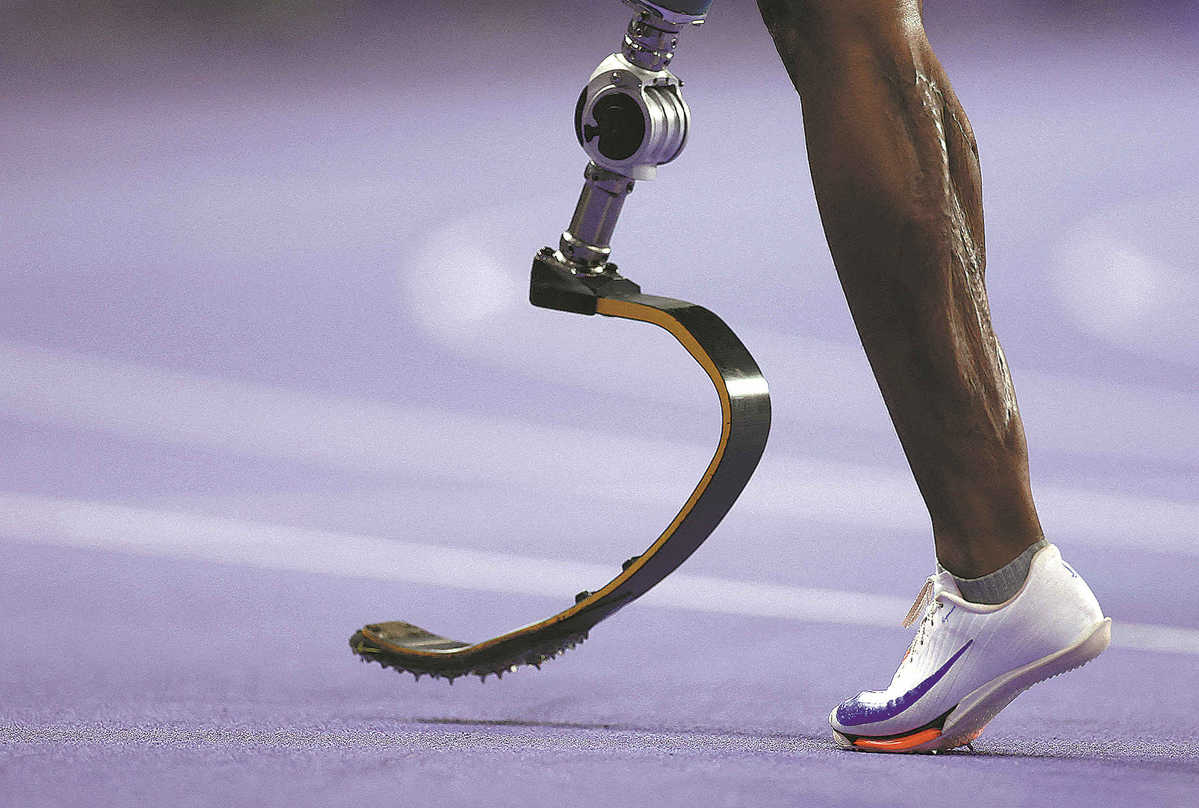
Experience doesn't always guarantee victory, but the spirit of relentless pursuit remains constant. On Saturday, 38-year-old wheelchair racer Marcel Hug of Switzerland saw the dream of repeating his four-event heroics at the Tokyo 2020 Paralympic Games slip away in a dramatic 5,000m T54 final at the Stade de France, as American Daniel Romanchuk surged past him in the final stretch.
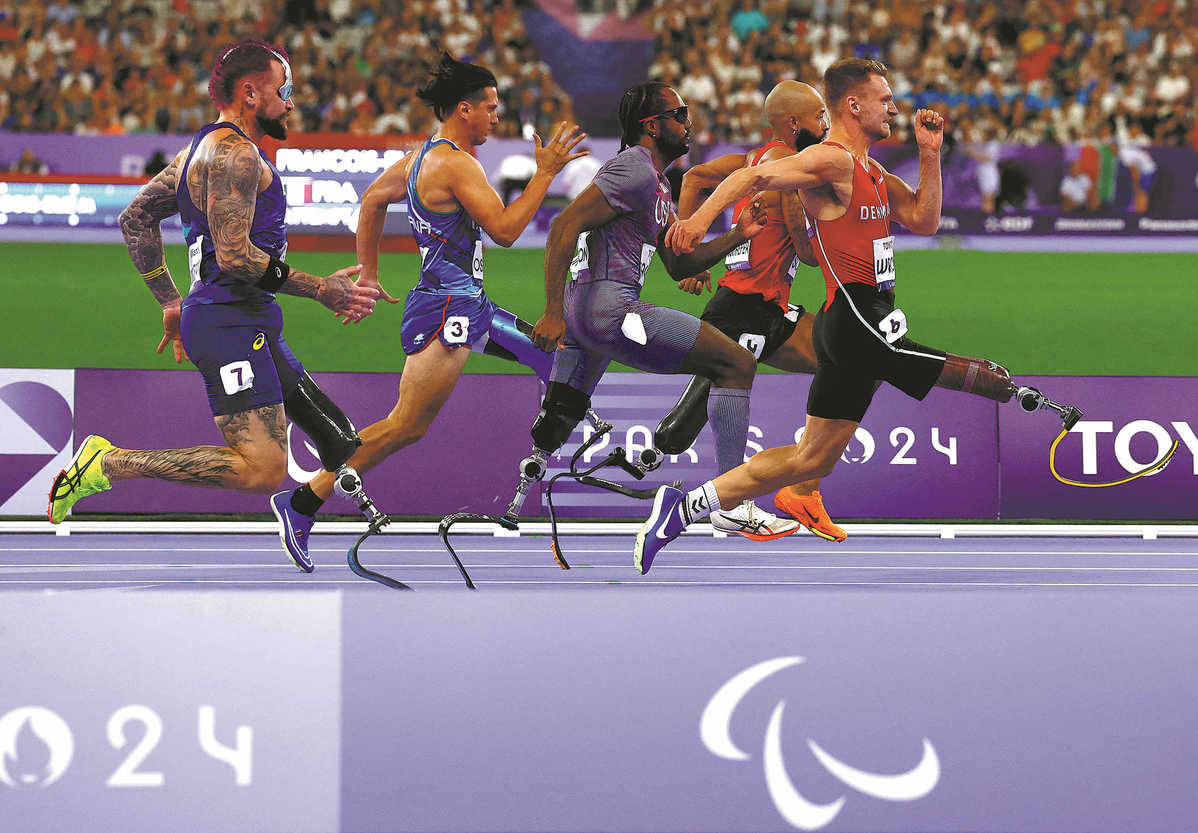
"I tried to win, but I knew it would be difficult," Hug reflected. "It was a very strong field, and Daniel is an outstanding sprinter."
He has another chance to add to his two golds from Rio and four from Tokyo on Wednesday, in the T54 1,500m final.
liyingxue@chinadaily.com.cn
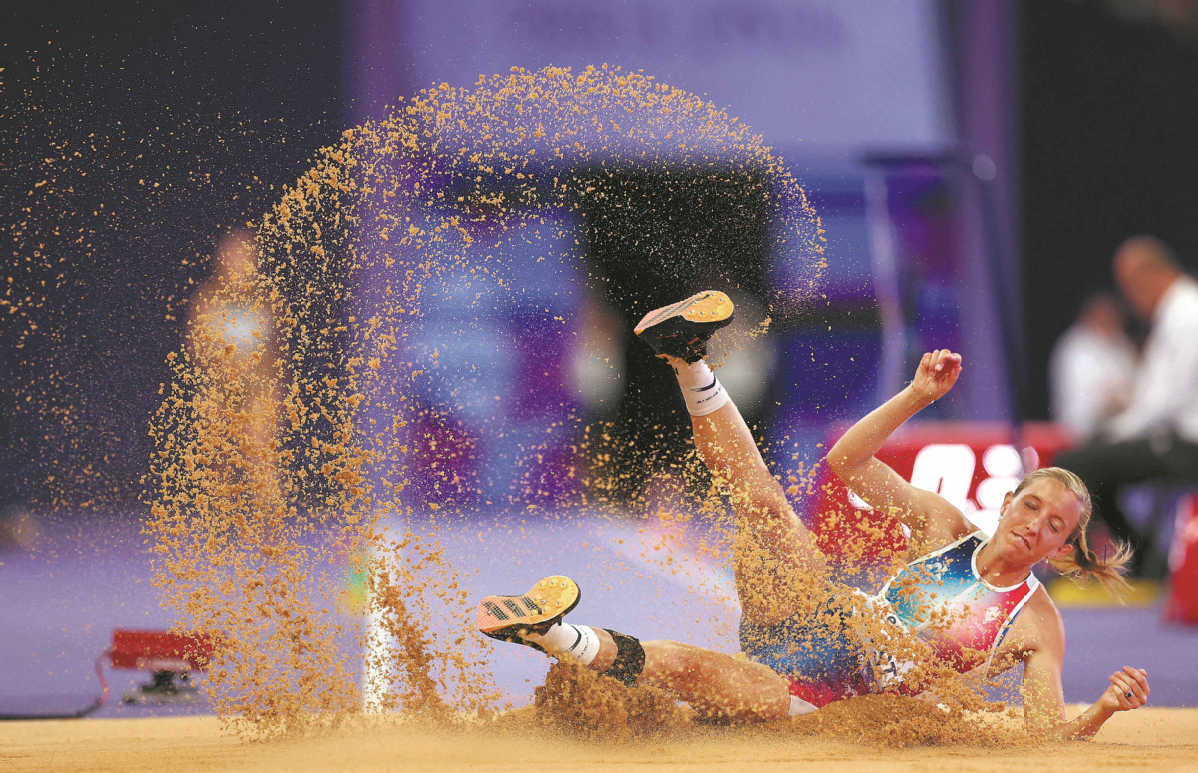
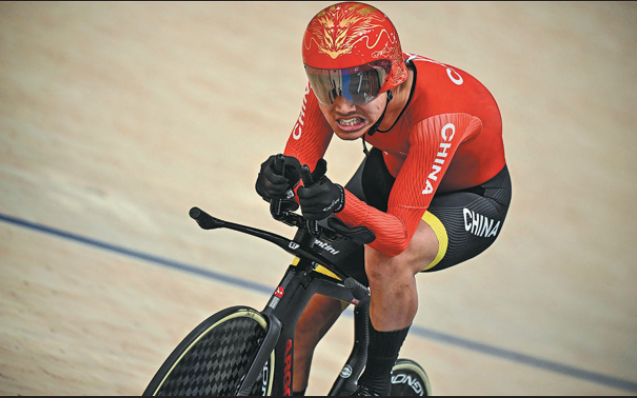
The cycling track at the Paris Paralympics, an oval-shaped 250-meter circuit with a steep 45-degree incline, challenges even the most skilled athletes. Those competing in the C1 category, who contend with significant physical impairments, might struggle to stay steady on flat terrain.
Yet, on this demanding track, they deliver electrifying performances of speed and determination.
Among them is the "Cyclone Kid", Li Zhangyu, a cyclist who has ascended to the top of the podium in four consecutive Paralympic Games. On the Paris track, it takes him just over three and a half minutes to cover 3,000 meters.
In the men's C1 3,000m individual pursuit final at the National Velodrome in Paris on Thursday, he shattered the world record in the preliminaries and went on to claim the gold medal — the first for China's Paralympic team in Paris. Just two days later, he added another gold to his tally in the men's C1-3 1,000m time trial.
After securing his first gold medal, Li celebrated with unadulterated joy, raising his arms in triumph and laughing out loud. During the awards ceremony, as the crowd erupted in cheers, he couldn't stop smiling.
When asked how it felt to win Paralympic gold in Paris, Li responded: "It made up for the disappointment in Tokyo." At the Tokyo Paralympics, Li had earned a bronze in the same event. Despite also taking home a gold and a silver, he wasn't satisfied. Determined to push himself further, the then 33-year-old chose to give it one more try.
To make his return to the Paralympic stage, Li committed to an intense training regimen. From strength conditioning to speed drills, often training up to seven hours a day. With multiple events to prepare for, ranging from short to long distances, Li's training load was the heaviest on the team.
Li Peng, who has coached the Chinese wheelchair cycling team since 2010, shares a deep understanding with Li Zhangyu. "We don't need to speak — just a glance at his eyes, and I can tell how he's feeling, whether his confidence is high or low," Li Peng said.
"He competes in a category with the most severe disabilities. Racing on a track with a 45-degree incline means he's constantly battling against himself," Li Peng added. "Overcoming yourself sounds simple, but in reality, what he's endured is far more challenging."
As a child, Li Zhangyu was diagnosed with congenital cerebral palsy. By the time he was one or two years old, he still couldn't walk, talk or even sit upright without support. But, the moment he got on a bicycle, everything changed — his hands and feet suddenly filled with strength. Despite his poor coordination and frequent falls, Li Zhangyu was determined. He always got back up and kept riding.
From then on, the bicycle became his most trusted companion. At 20, he became a competitive cyclist, discovering new purpose and direction through the discipline of training and competition. "Winning championships isn't what matters most to me," he said. "I hope to use cycling and competition to inspire others with my spirit and perseverance."
Over more than a decade of international competition, Li has amassed dozens of medals at the Paralympics, World Championships, and Asian Para Games.
After securing China's first gold medal at the Paris Paralympics, Li Zhangyu expressed his wish was to share his triumph with his family, who are thousands of miles away.
The rigorous demands of high-intensity training and competition have kept him apart from his family for much of the past few years. Following the 2023 Hangzhou Asian Para Games, he had mentioned his intention to return home to spend time with his loved ones, specifically aiming to teach his 8-year-old son how to ride a bicycle.
Reflecting on this, he chuckled and said, "I've started teaching him, but he hasn't quite mastered it yet. I'll continue when I get back. With a champion for a father, how could he not learn?"
"It's been five or six months since I last saw my family, and I miss my son dearly. Daddy has won a gold medal for you — wait for me, I'll be home soon."
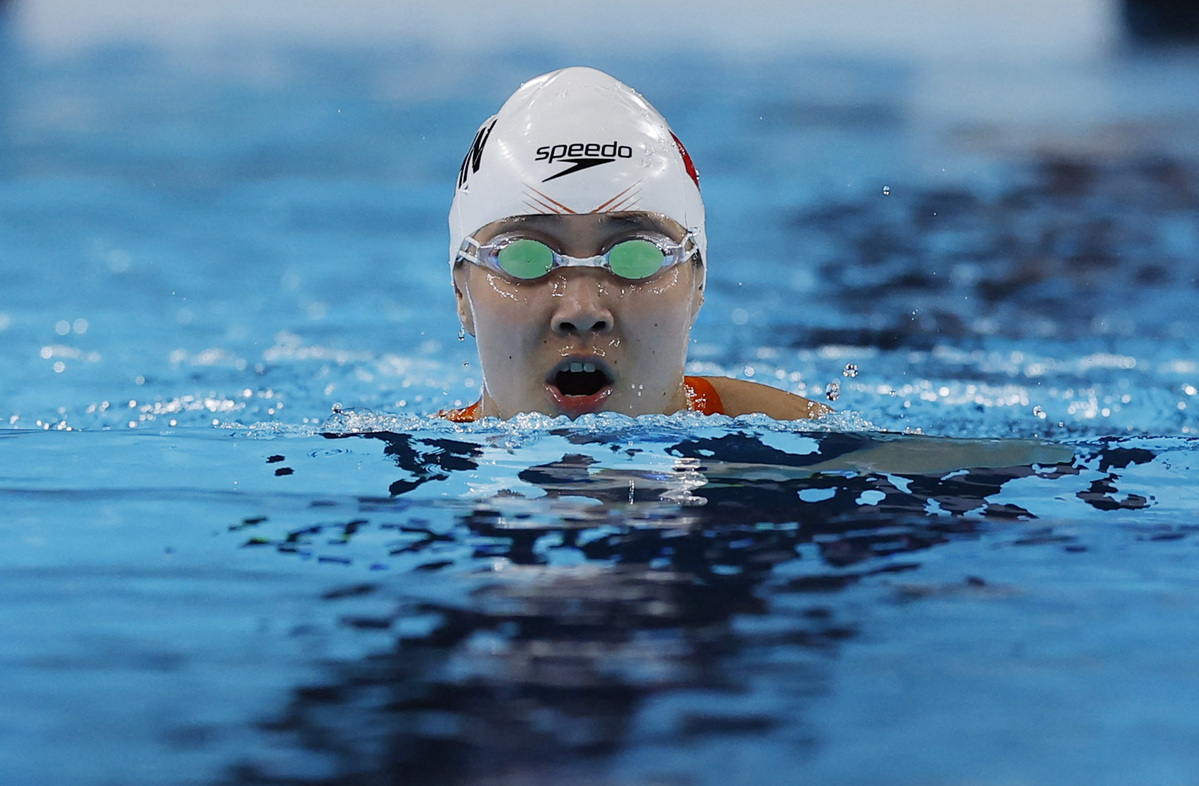
Before the Paris Paralympics, Jiang Yuyan added a touch of flair to her left hand — a set of long, sparkling nails that she hoped might offer a slight psychological edge in competition.
In reality, Jiang needed no such boost. On the opening day of the Paris Paralympics, she delivered a commanding performance in the women's 50m freestyle S6 final at the Paris La Defense Arena on Thursday, capturing gold with a time of 35.59 seconds. In doing so, she not only left her competitors behind but also shattered the Paralympic record she had set just hours earlier in the preliminaries.
"I was genuinely surprised to break the record twice," Jiang admitted. "I'm typically a slow starter. At the Tokyo Paralympics, I didn't perform well in this event on the first day — I didn't even reach my usual training level."
Three years ago, she finished just off the podium in fourth place. But in Paris, she finally made up for that.
After claiming gold, Jiang was met by American swimmer Ellie Marks, the silver medalist, who swam over to embrace her in celebration. "I swam against incredible women, and I'm very proud of all of them. I'm proud to swim with them," Marks said.
Jiang and Marks are well-acquainted rivals, having faced off in numerous events and frequently sharing the podium. "No matter who wins or loses, we always make sure to congratulate each other afterward," Jiang noted.
She credits her recent successes to a combination of scientific training and a professional support team. Over the past two years, she has intensified her focus on strength and explosiveness, allowing her to comfortably secure the gold in the 50m freestyle — an event that was once a weaker spot in her repertoire.
At just 19 years old, she has already become a "gold medal machine". At the Tokyo Games, she won two golds, one silver, and one bronze. Over the 2019 and 2023 World Championships, she amassed a total of seven gold medals, and at last year's Asian Para Games in Hangzhou, she dominated with seven golds and one bronze.
As she competes in the Paris Paralympics, Jiang's goal is clear: to defend her Tokyo titles and achieve even better results in other events.
"My training and skills have improved significantly over the past few years, and I've gained more confidence from competing on the international stage," she said.
"In the past, I always focused on my opponents, using them as my benchmark. Now, my goal is to surpass myself.
"Each race is just one shot in time. Once it's over, I completely put it behind me and pour all my energy into the next one."
Three years ago, in Tokyo, Jiang was the youngest member of the Chinese delegation. Now, at 19, she feels the weight of greater expectations, and admits to feeling more nervous than she did in Tokyo.
"Representing China, I feel it's essential to perform at my highest level," She said. "The pressure I feel comes from a strong sense of duty. My team shares this mission-driven mind-set, and we consistently perform better in relay events than in individual ones."
On Friday, in the mixed 4x50m freestyle relay 20 points event, Jiang and her teammates rose to the pressure admirably, winning with a world record time of 2:14.98, earning Jiang her second gold medal of the Games.
"With three strong teammates by my side today, I felt I couldn't let them down. We needed to secure this gold medal," Jiang said. "The pressure was greater than the day before, which made winning today even more satisfying."
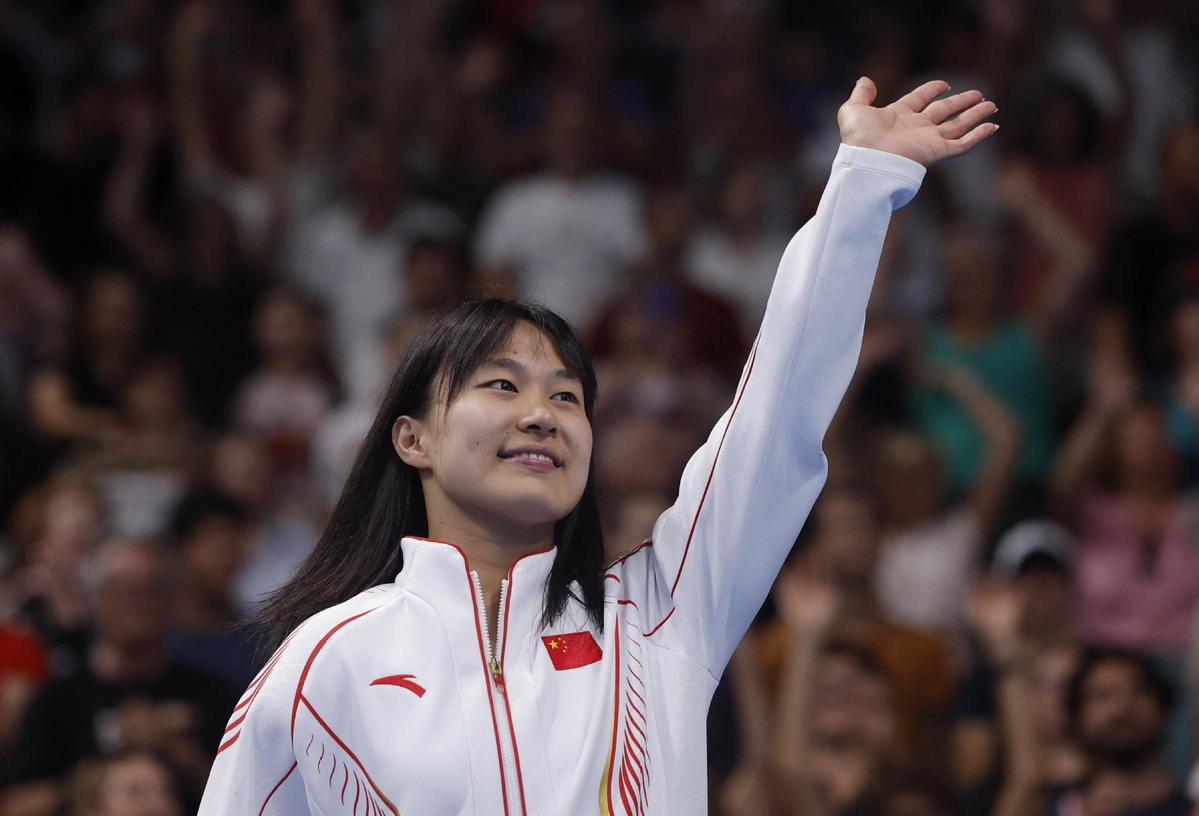
Defying the odds
Jiang lost her right arm and leg in a car accident when she was just three years old.
She took up swimming at the age of eight, and by 13, she was a national champion; by 14, she had won gold at the Asian Para Games; and by 17, she had claimed a Paralympic title.
Her rise has been meteoric, but it is the result of tireless dedication. While most swimmers start with breaststroke, Jiang had to begin with freestyle due to her unique physical condition.
As a swimmer who relies on the strength of just one side of her body, Jiang must master the rhythm and precision of her movements to stay afloat. Even the slightest disruption can cause her body to sink.
In 2017, Jiang joined the Zhejiang provincial para swimming team, where she committed to a grueling regimen of at least 10,000 meters a day. The team's coach, Feng Jie, describes Jiang as the "ideal athlete "that every coach dreams of: She possesses a strong foundation, willingly endures the rigors of training, and even relishes the pressure and challenges of competition.
Yet, when it comes to natural ability, Feng admits, "Jiang doesn't have an exceptional 'feel' for the water; her body feels heavy in the water."
Due to her missing right arm, Jiang must make 11 more strokes than her competitors in the 50m freestyle. Feng noted that Jiang is intensely competitive, often challenging male swimmers and those with less severe disabilities.
"She meticulously studies her technique and identifies her weaknesses," Feng said.
Despite her ongoing struggles with breaststroke, Jiang continues to push her boundaries. At last year's Asian Para Games in Hangzhou, where she won seven gold medals and one bronze, the latter came in the 200m individual medley SM6.
It was her first time competing in the event on the international stage.
For Jiang, the freedom of gliding through the water and the thrill of standing on the podium make the intense training and competition worthwhile.
"In the water, I don't need prosthetics or crutches; with my own strength, I can control my direction," she said in the documentary Above Water.
The film, which began production in 2018 and took six years to complete, chronicles the journeys of several Chinese para athletes in water-related events, including Jiang.
Now a sophomore at Beijing Sports University, Jiang hopes her story will inspire others. "By participating in para ports and competing on the Paralympic stage, many people with disabilities will see me. I want to convey that with dreams and determination, and by continually striving, we can all be seen and shine brightly," she said.
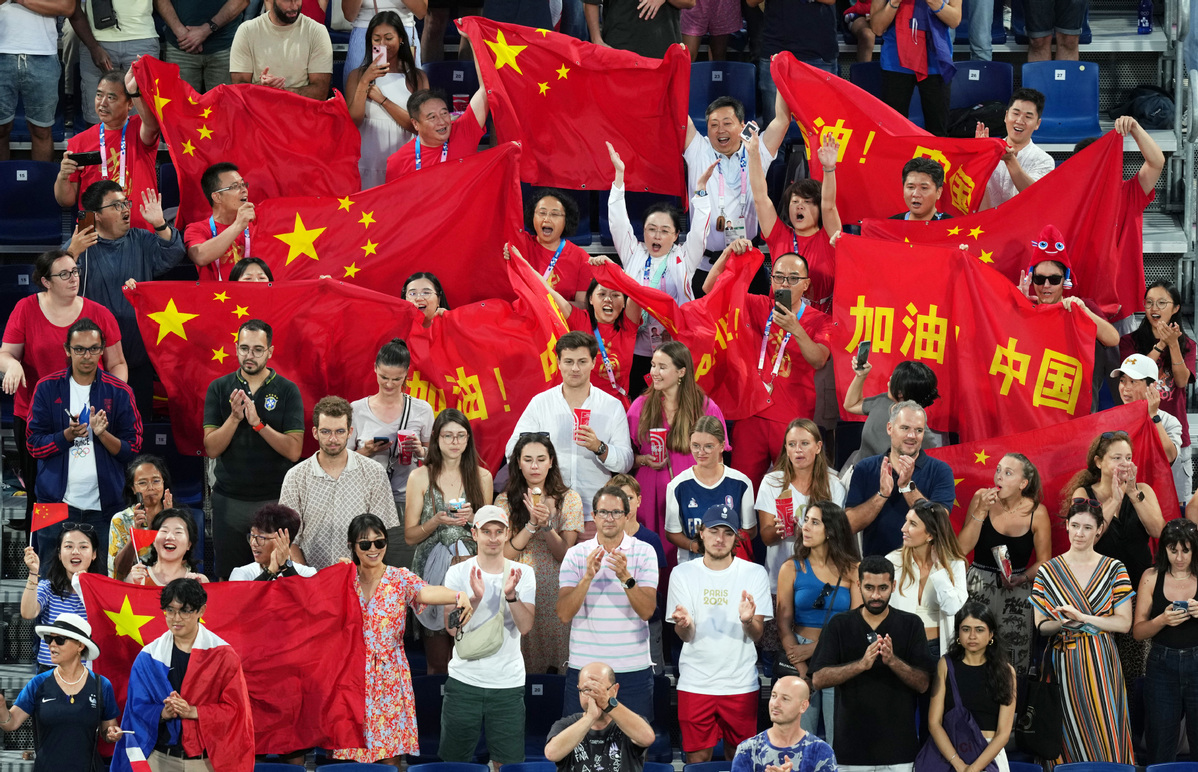
PARIS -- Ticket sales of the Paris 2024 Paralympic Games have reached 2.3 million after the weekend, the organizers announced here on Monday.
"The great news is that ticket sales are continuing to fly. We have now reached the milestone of 2.3 million tickets sold for the Paralympic Games. It's a success for all of us," said Anne Descamps, Executive Director of Communication of the Paris 2024 Organizing Committee.
The London 2012 set the tickets record at 2.7 million for the
Paralympic Games. Craig Spence, Chief Brand & Communications Officers of the International Paralympic Committee (IPC), said, "I'm not sure we're going to get there. London was 2.7 million, Paris is on 2.3m, so we're 400,000 away. I think we'll be looking at just over 2.5m."
"We welcomed more than 570,000 ticket holders to our venues over Saturday and Sunday. We had almost 90,000 ticket holders at the Stade de France over two sessions of athletics. It was also fantastic to welcome the return of our iconic Eiffel Tower Stadium where the stands were full, with around 9,000 spectators for each session of the blind football," Descamps said.
Descamps said 192,000 tickets have been purchased by the French government for children to have a chance to experience the Paralympics.
"Today (Monday) more than 35,000 students will have the opportunity to watch sport, including para rowing, para swimming, blind football, wheelchair tennis and wheelchair basketball. Many more children all over France will be able to celebrate the Paralympic Games and discover para sport through the network of more than 400 Paris 2024 Mini Clubs which will open from today," she added.

The Olympic passion of Hong Kong residents has been ignited further as they have the opportunity to witness the charm of Paris Olympic champions visiting the city.
Following their triumph at the Paris 2024 Olympic Games, a delegation of Chinese mainland Olympians, including 59 gold medalists, are on a three-day visit to Hong Kong to share their Olympic stories before leaving for Macao on Saturday.
On Friday morning, the Olympians were divided into groups and visited various places to interact with local athletes, students from Hong Kong primary and secondary schools and the general public, earning the athletes a rapturous welcome.
More than 30 athletes and coaches, including table tennis players Wang Chuqin and Wang Manyu, visited the Hong Kong Sports Institute, an institution that has nurtured numerous outstanding Hong Kong athletes over the years, to engage with local athletes and build friendships.
The delegation gained insights into how the institute nurtures athletes, touring various training facilities on campus. The institute organized a series of sports activities, such as allowing the swimming athletes to experience fencing and table tennis players to try squash.
To enhance interaction among the athletes from the mainland and Hong Kong, fun activities were organized, including demonstration competitions like cycling challenges to test endurance and quick games to assess agility.
There were also exchanges and sharing sessions between members of the national table tennis team and the Hong Kong team, who used to be opponents in many competitions.
Elena Chi Yi-lam, a swimmer on the Hong Kong team, brought a swimming cap to have it signed and also to be photographed with her favorite swimmer and role model, Zhang Yufei, who won one silver and five bronze medals at the Paris Games.
Chi said the swimming cap features a design of the flag of the Hong Kong Special Administrative Region, her hometown, along with a signature of her role model, making it a cherished and significant souvenir for her.
"This cap will give me more motivation and prevent me from giving up. I hope that in the future, I will be as great as her," she added.
Quan Hongchan, a two-time Olympian and three-time gold medalist in diving, along with several other national athletes, visited St. Paul's College to meet with local students.
Dozens of fans showed up outside the school early in the morning to see the stars, who were greeted by the crowd with cheers and the clicking of camera shutters outside the school when they arrived.
Gary Liu, 10, is an admirer of Quan. He got up at 7:30 am and traveled for about 1.5 hours from his home in Tuen Mun to the college to get a glimpse of his idol.
Liu said he was moved not only by Quan's great diving skills, but also by her persistence even under adversity or while injured. He added that the excellent qualities he has seen in Quan have inspired him to study hard.
Chen Meng, who clinched golds in women's single and team competitions in table tennis in Paris, visited the college on Friday, and said she hoped to bring the spirit of sports and positive energy into schools through these exchanges.
At the badminton court of the South China AA Sports Complex in Causeway Bay, the mixed doubles badminton champions at the Paris Olympics Zheng Siwei and Huang Yaqiong engaged in entertaining matches with local badminton enthusiasts.
Wong Pak-hang, 17, a student from St. Simon's Lui Ming Choi Secondary School, enjoyed watching the pair's matches very much, and got an autograph from Zheng this time.
"Their competitive spirit inspires me to improve my skills and face the challenges in life," Wong said.
The Olympians participated in a gala show on Friday night and are set to showcase their skills at two demonstrations, one at Queen Elizabeth Stadium and the other at the Victoria Park Swimming Pool on Saturday.
It has been a tradition for mainland Olympic medalists to visit the Hong Kong and Macao special administrative regions after finishing the Summer Olympic Games.
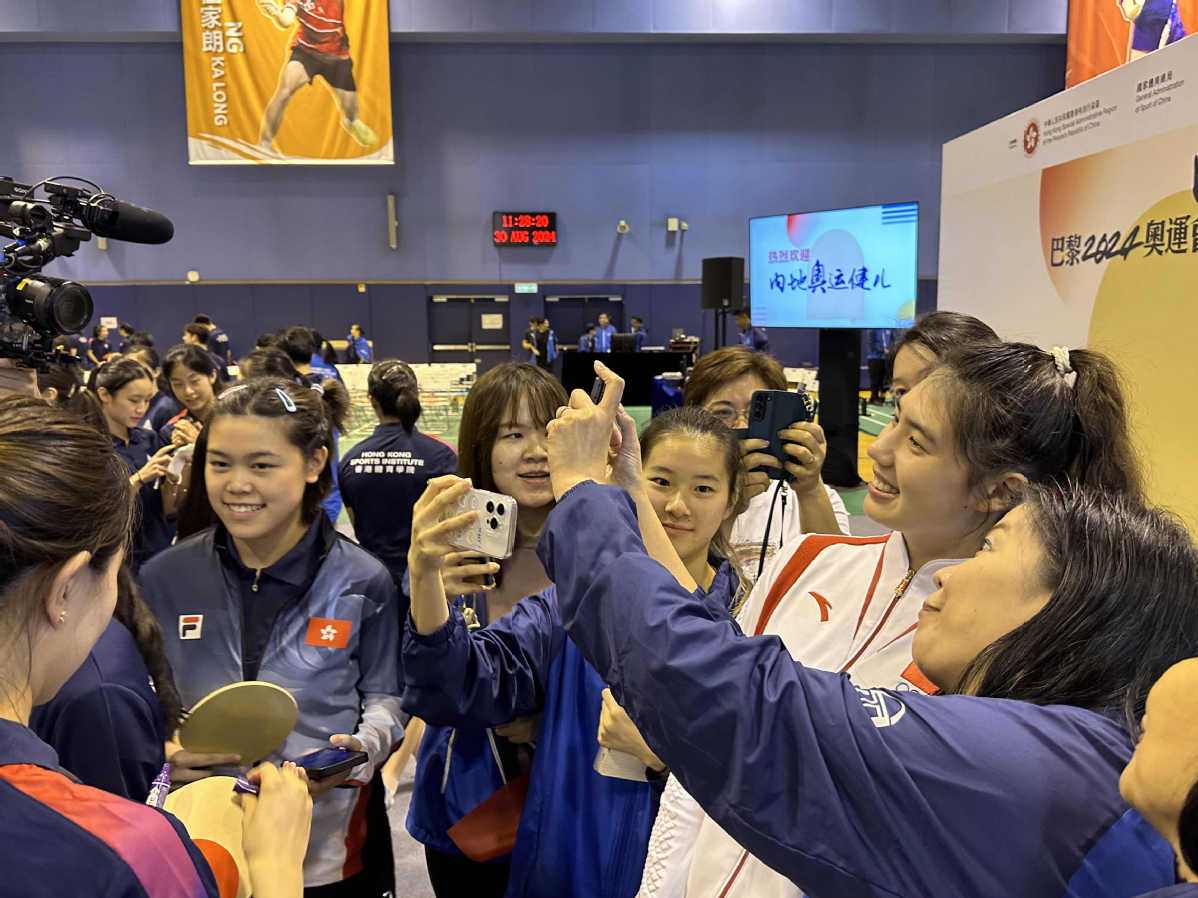
Mainland Olympians, including 59 gold medalists from the Paris 2024 Olympics, are on a three-day visit to Hong Kong, visiting the Hong Kong Sports Institute on Friday morning to engage with local athletes to foster friendships.
During their visit, they gained insights into how the institute nurtures athletes, touring various training facilities on campus. The institute organized a series of engaging sports activities, such as allowing the swimmers to experience fencing and table tennis players to try squash.
To enhance interaction among the athletes, fun activities were organized, including entertaining competitions like cycling challenges to test endurance and quick games to assess agility. There were also exchanges and sharing sessions between members of the national table tennis team and the Hong Kong team.
Elena Chi Yi-lam, a swimmer from the Hong Kong team, brought a cherished swimming cap to have it signed and photographed with her favorite swimmer and role model, Zhang Yufei from the national team.
She said, "This swimming cap will give me more motivation and prevent me from giving up."

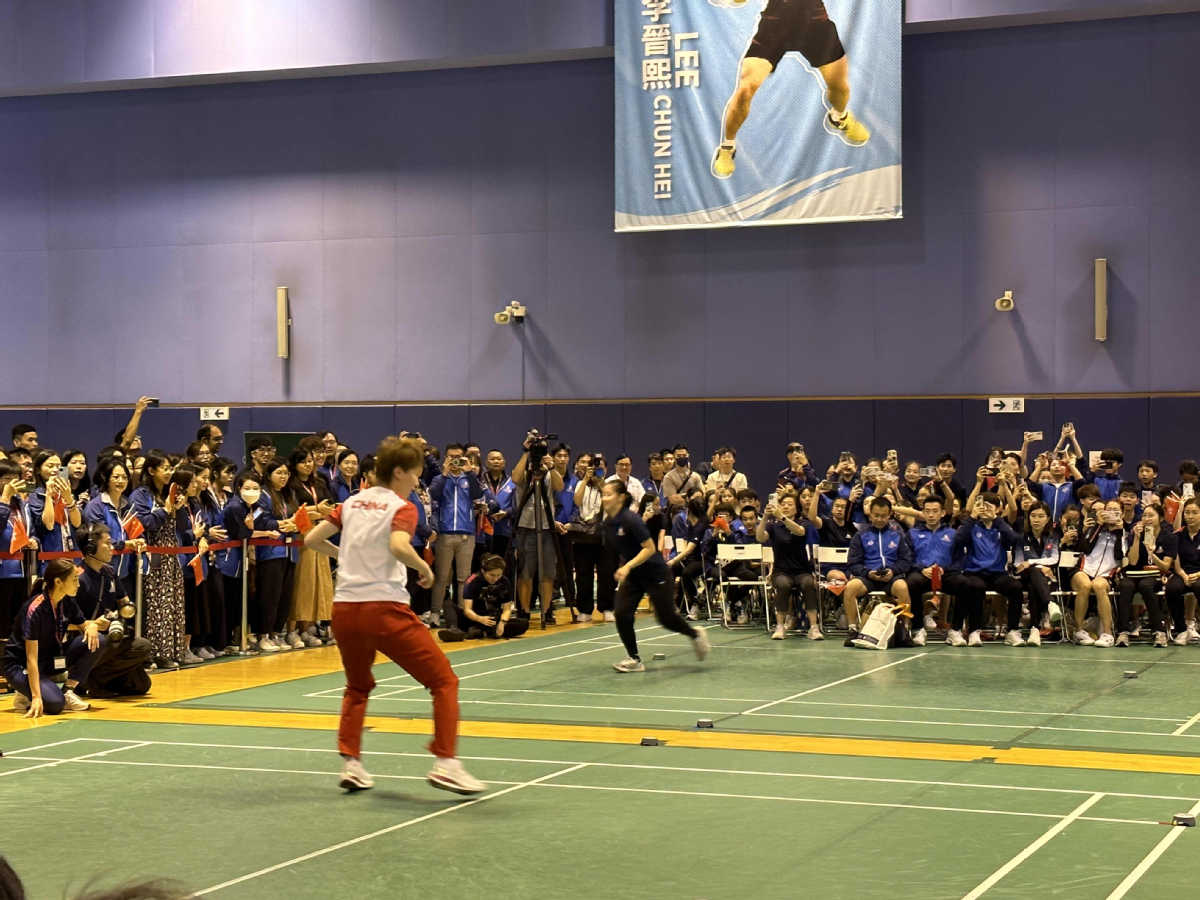
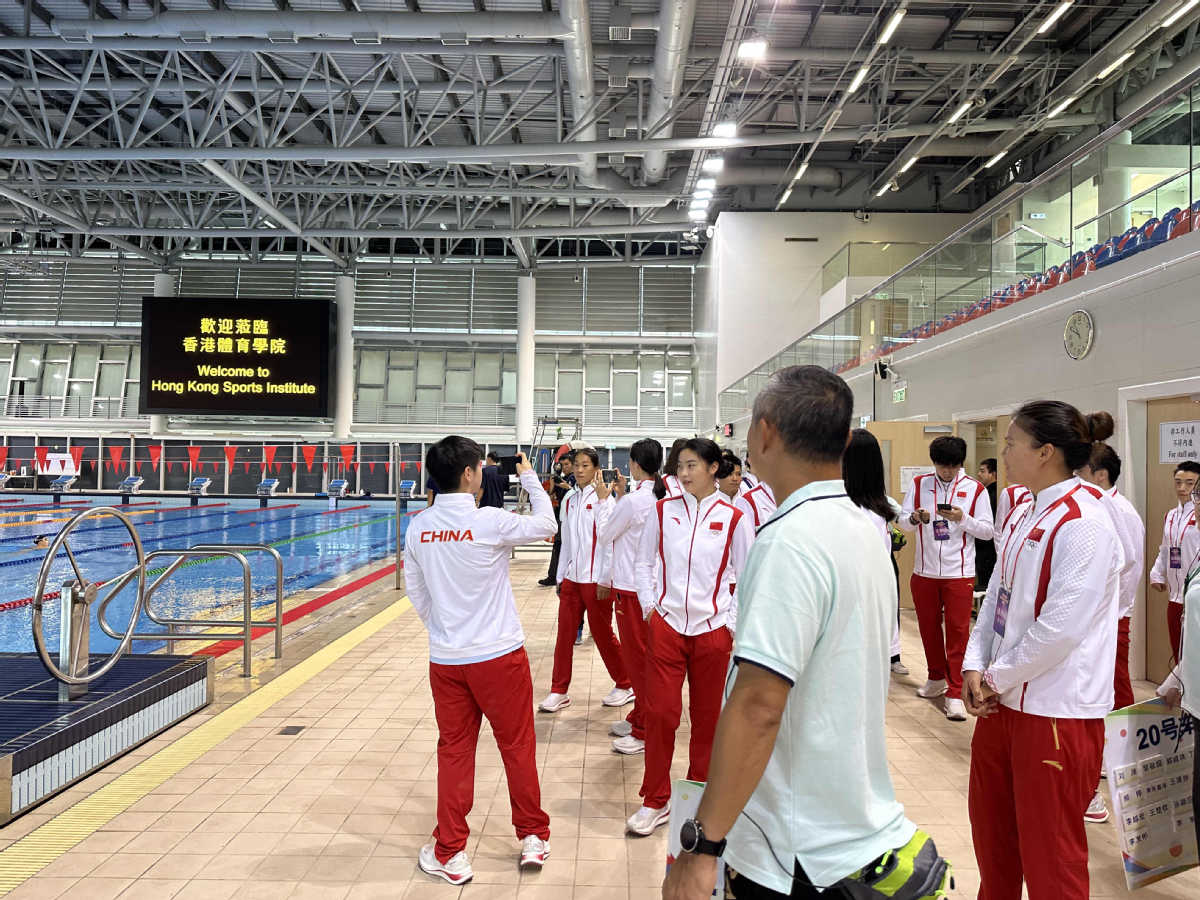
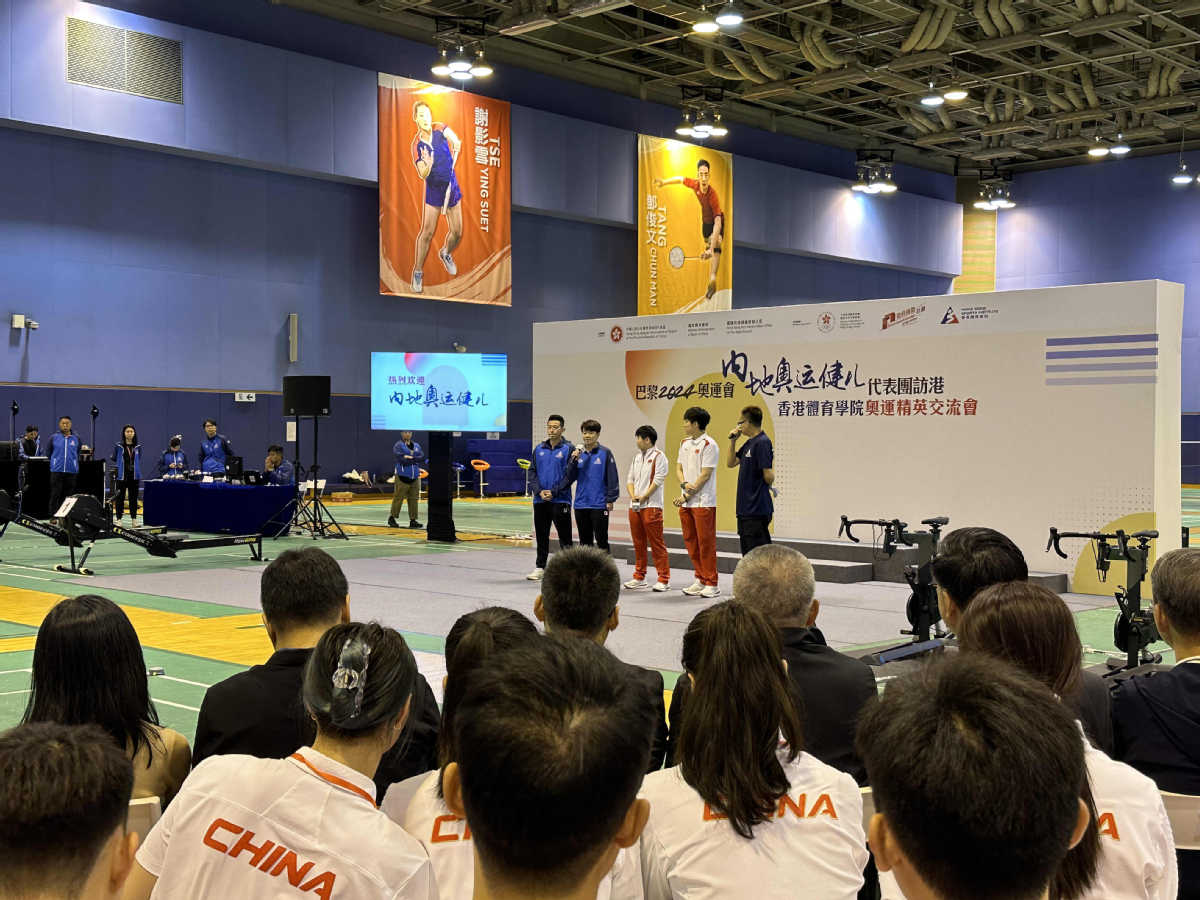
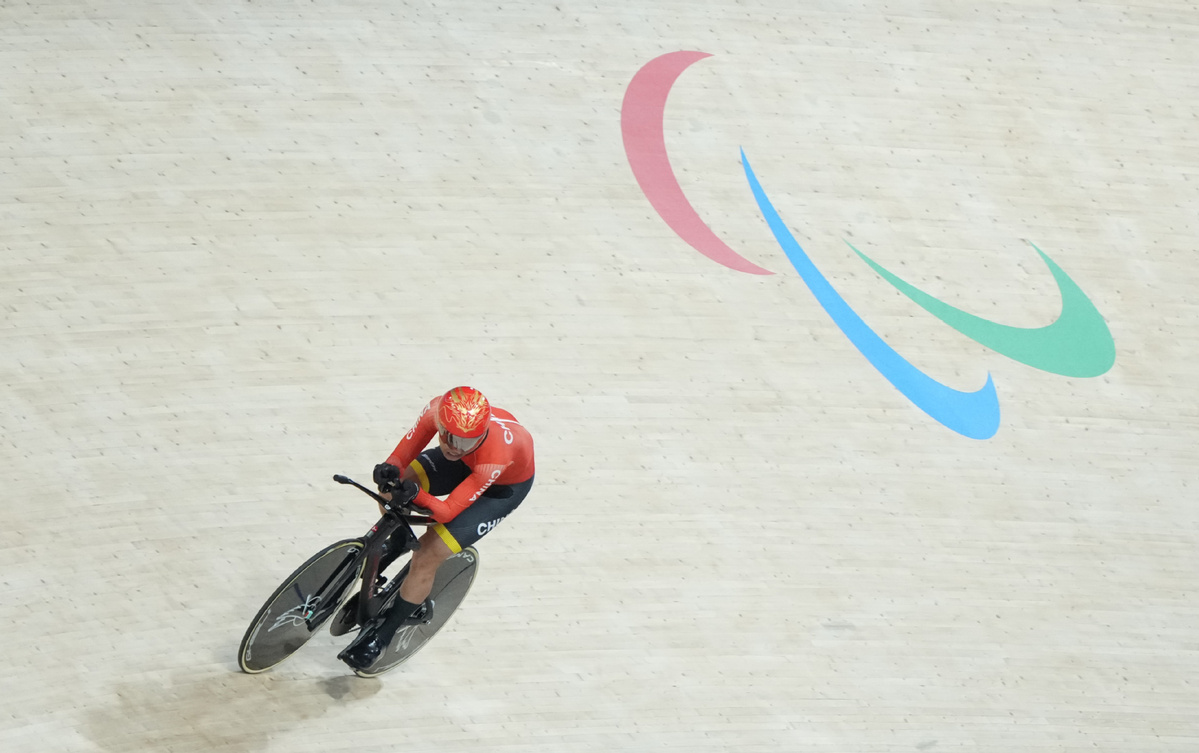
PARIS -- Chinese cyclist Li Zhangyu claimed the nation's first gold medal by beating his compatriot Liang Weicong in the men's C1 3,000m individual pursuit gold medal match at Paris Paralympics here on Thursday.
In the Paralympic C1 3,000m individual pursuit event, Li, 36, had taken a silver at London 2012, a gold at Rio 2016 and a bronze at Tokyo 2020. Furthermore, this is the fifth gold in his Paralympic tours.
"The gold medal made up for my regret at Tokyo 2020," Li said. "I thought about breaking the world record, but I didn't expect I could surpass it that much."
Li upgraded the new world record by over 4 seconds in the qualifying with a time of 3:31.338 and advanced to the gold medal match with Liang, ensuring a gold medal for the Chinese delegation before the final.
Li did not know before the match that he would win the first gold medal for China. "I am very excited to hear that. It's a huge honor for me."
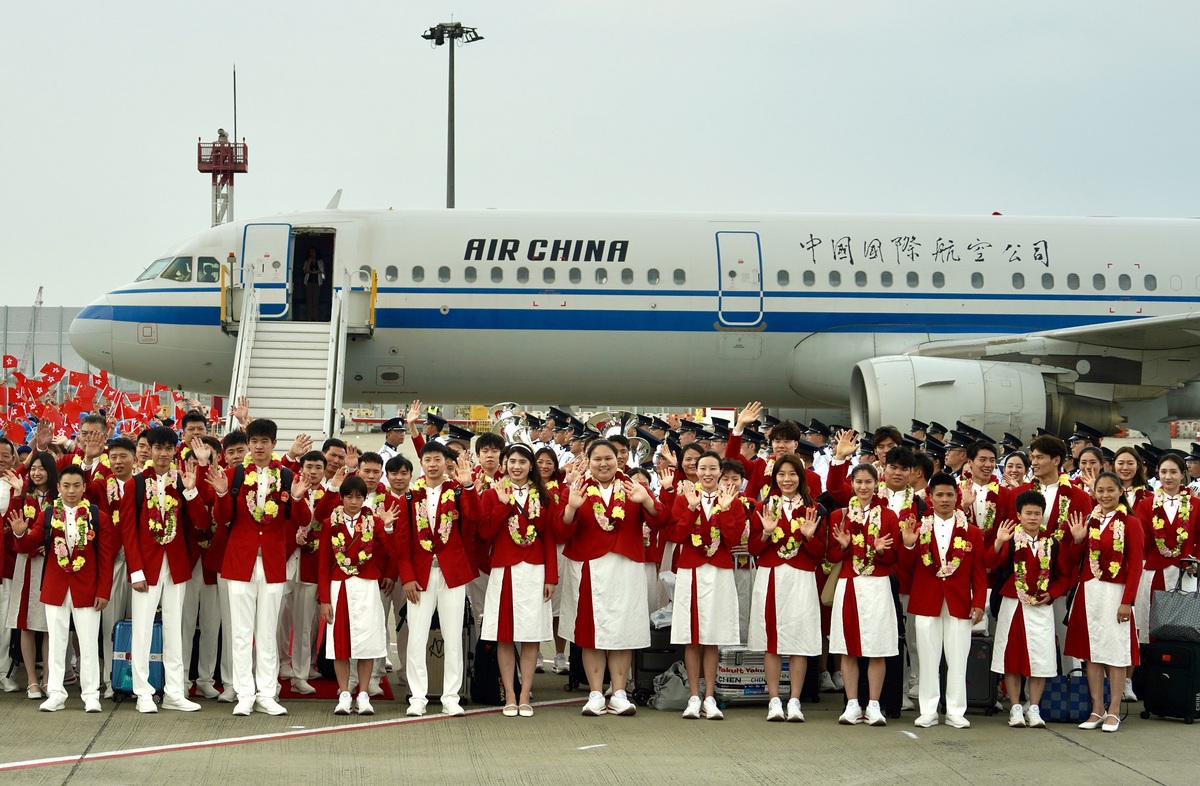
The delegation of Chinese mainland 2024 Paris Olympic Games Olympians arrived at Hong Kong International Airport on Aug 29.
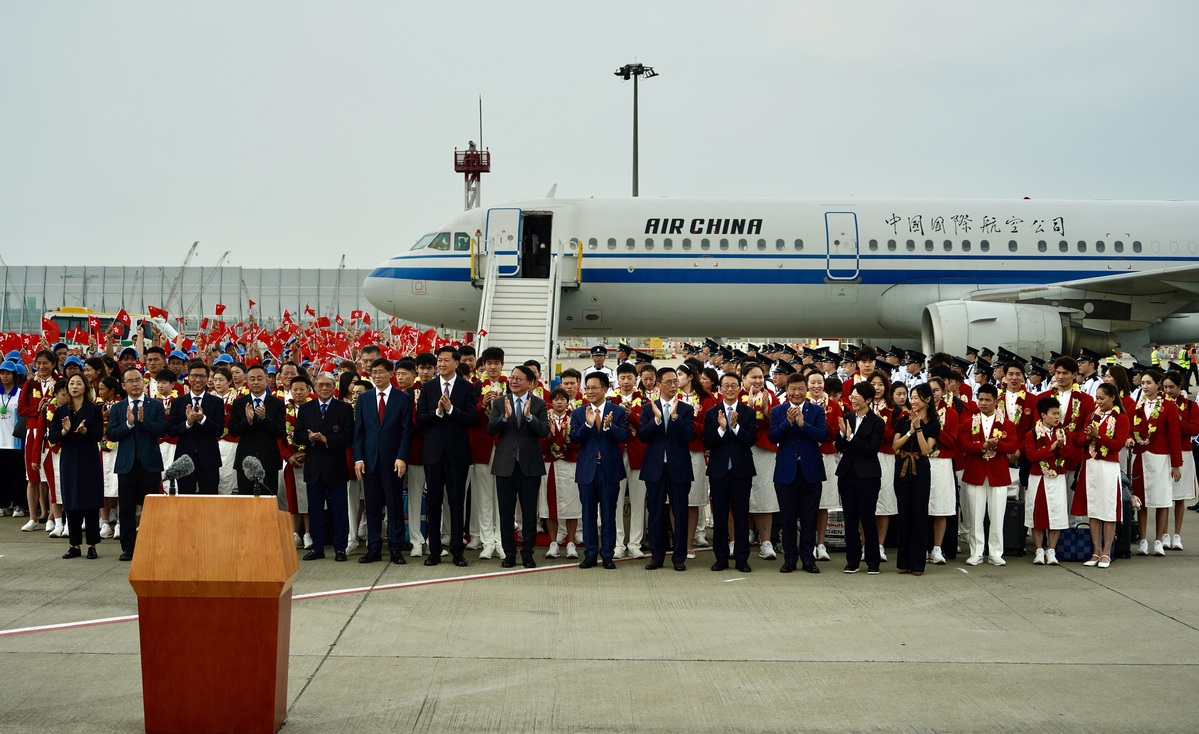
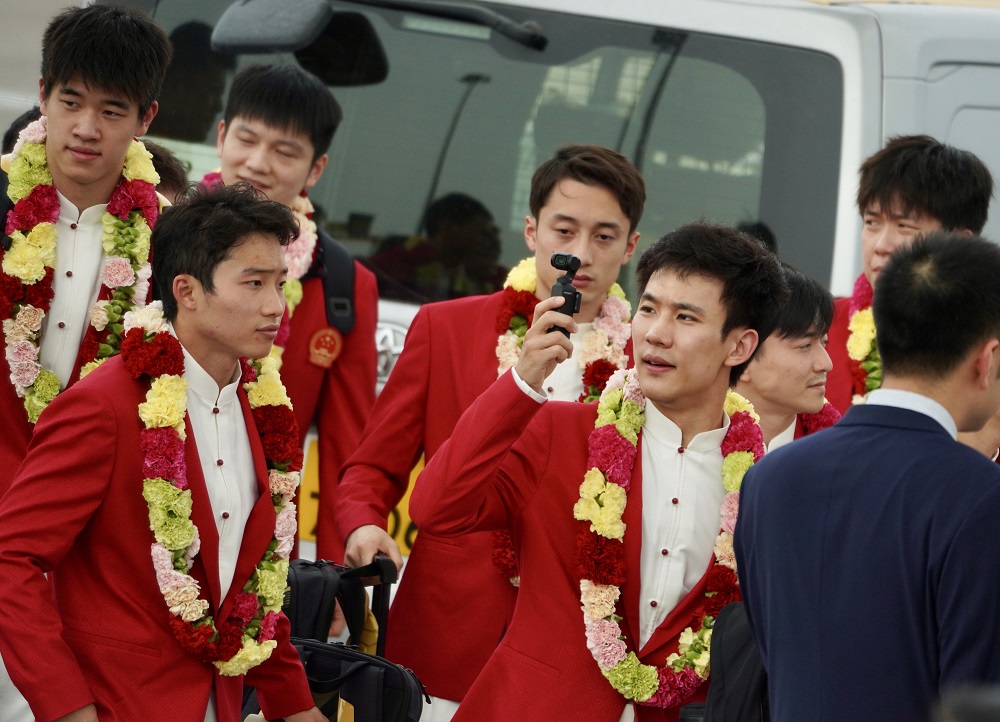
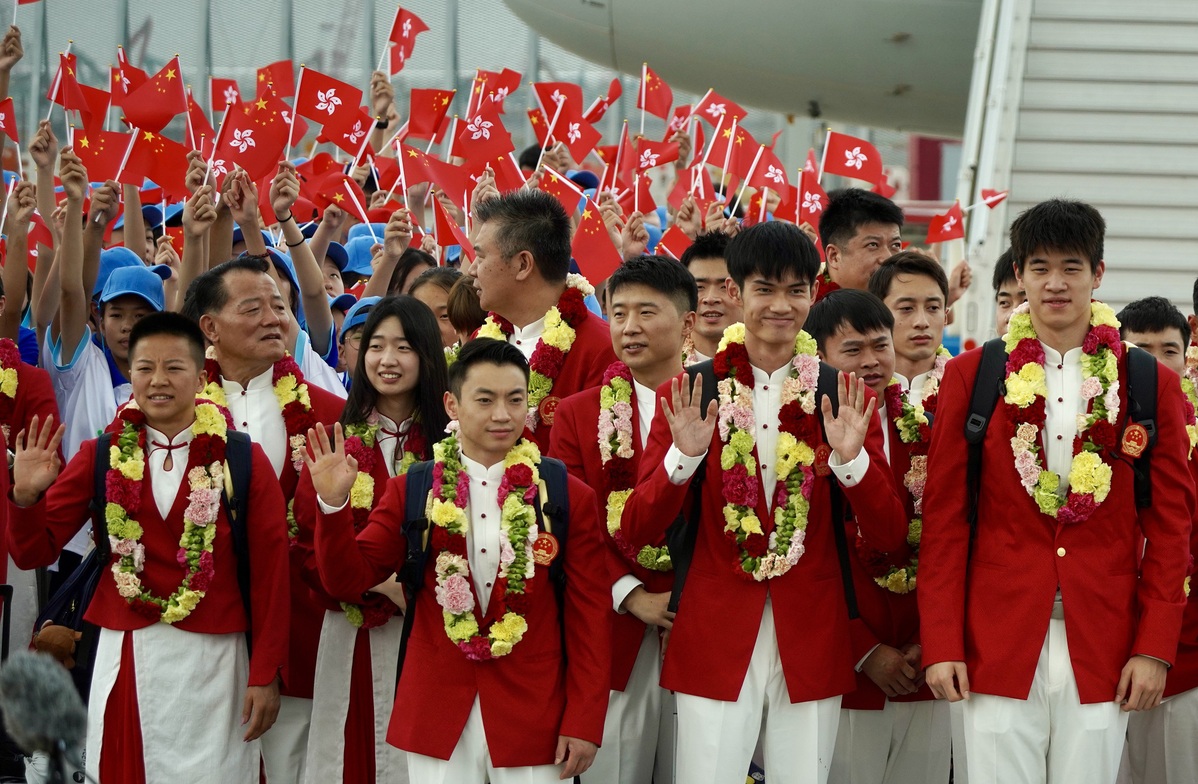
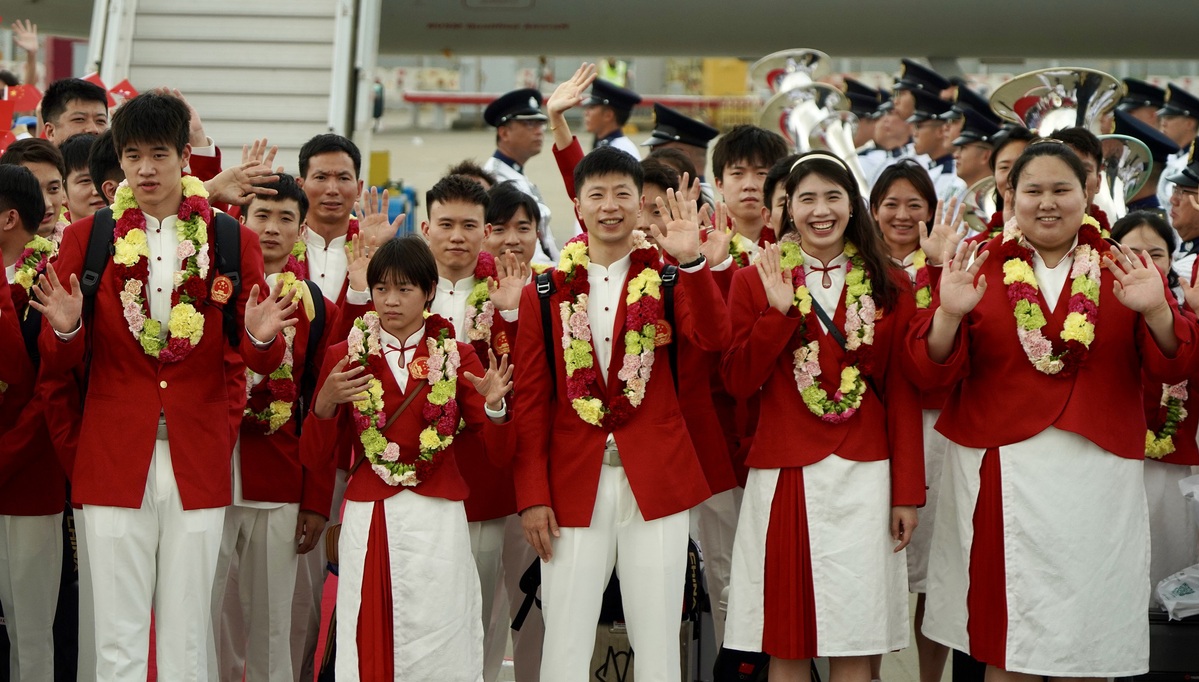

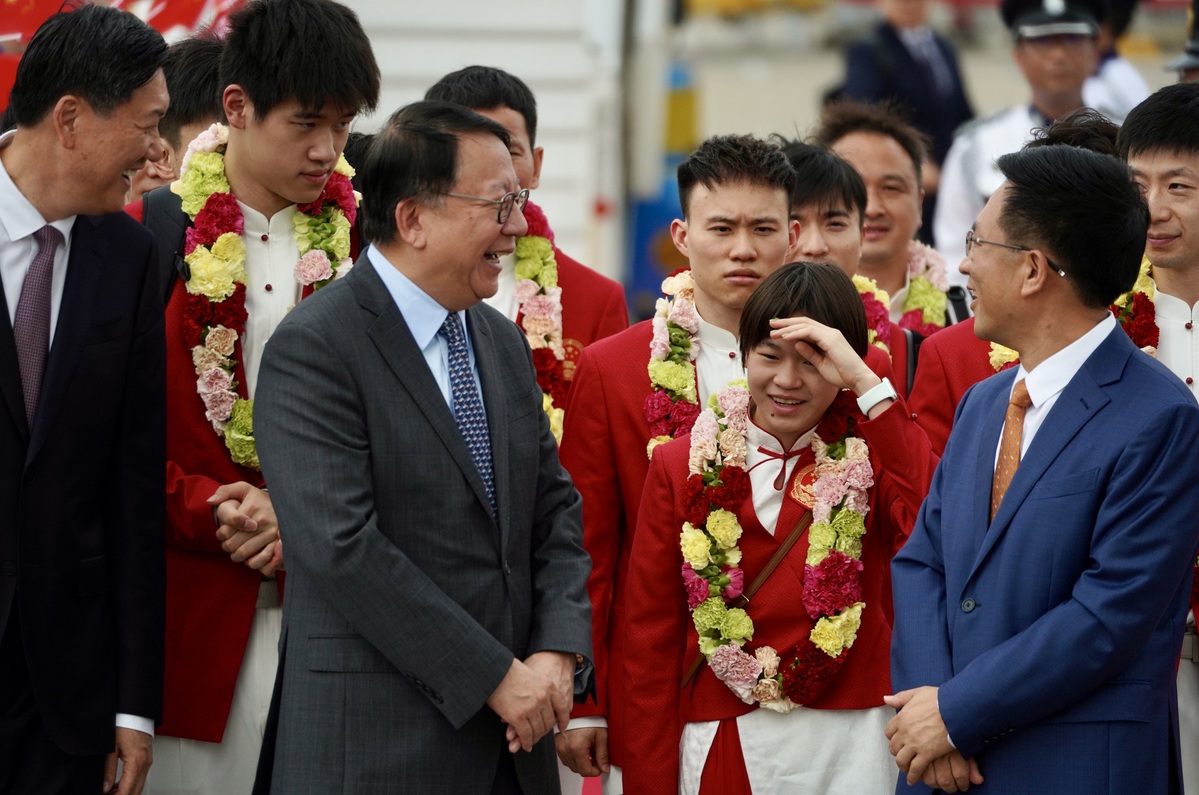
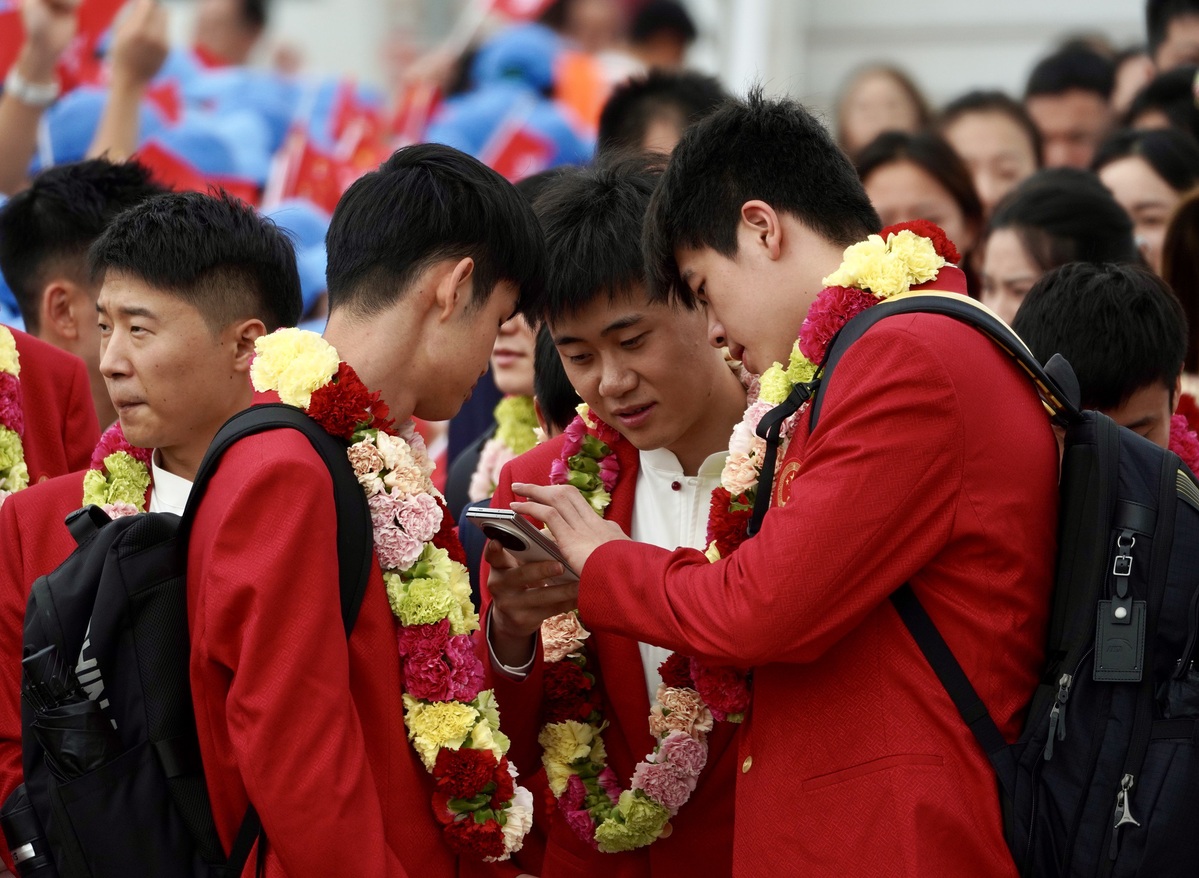
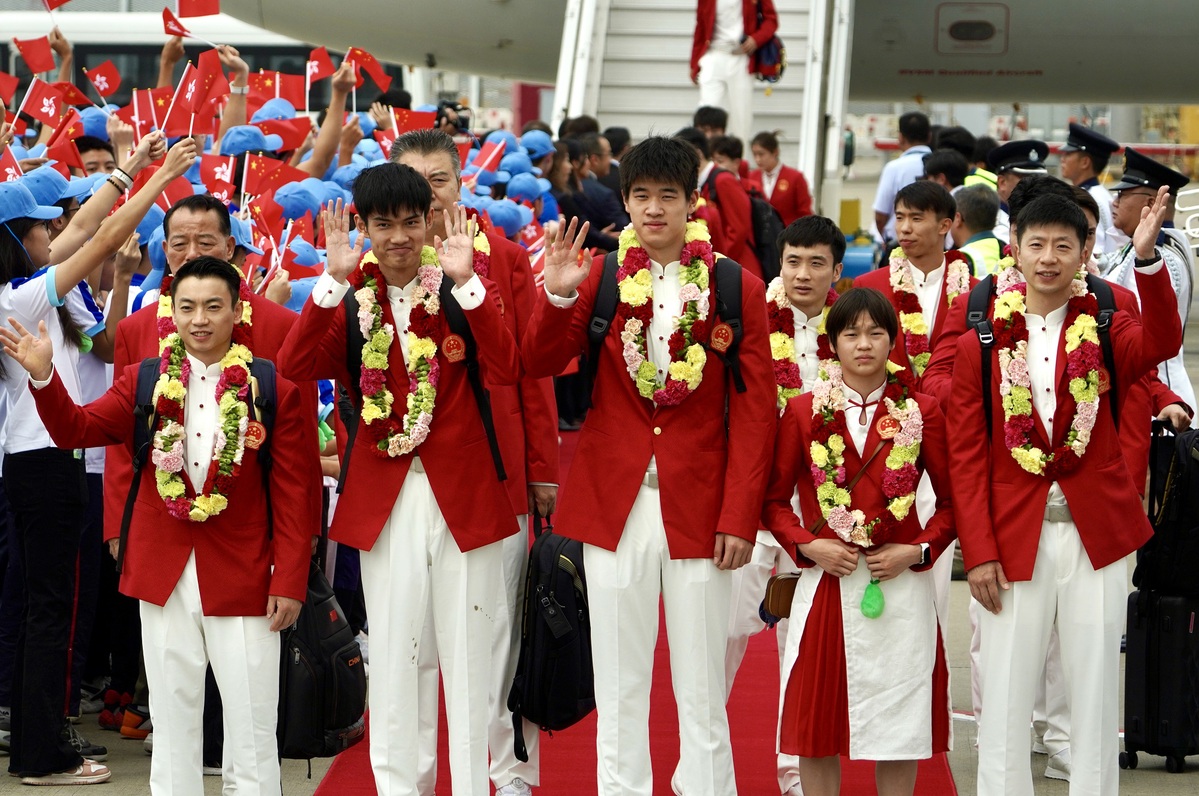
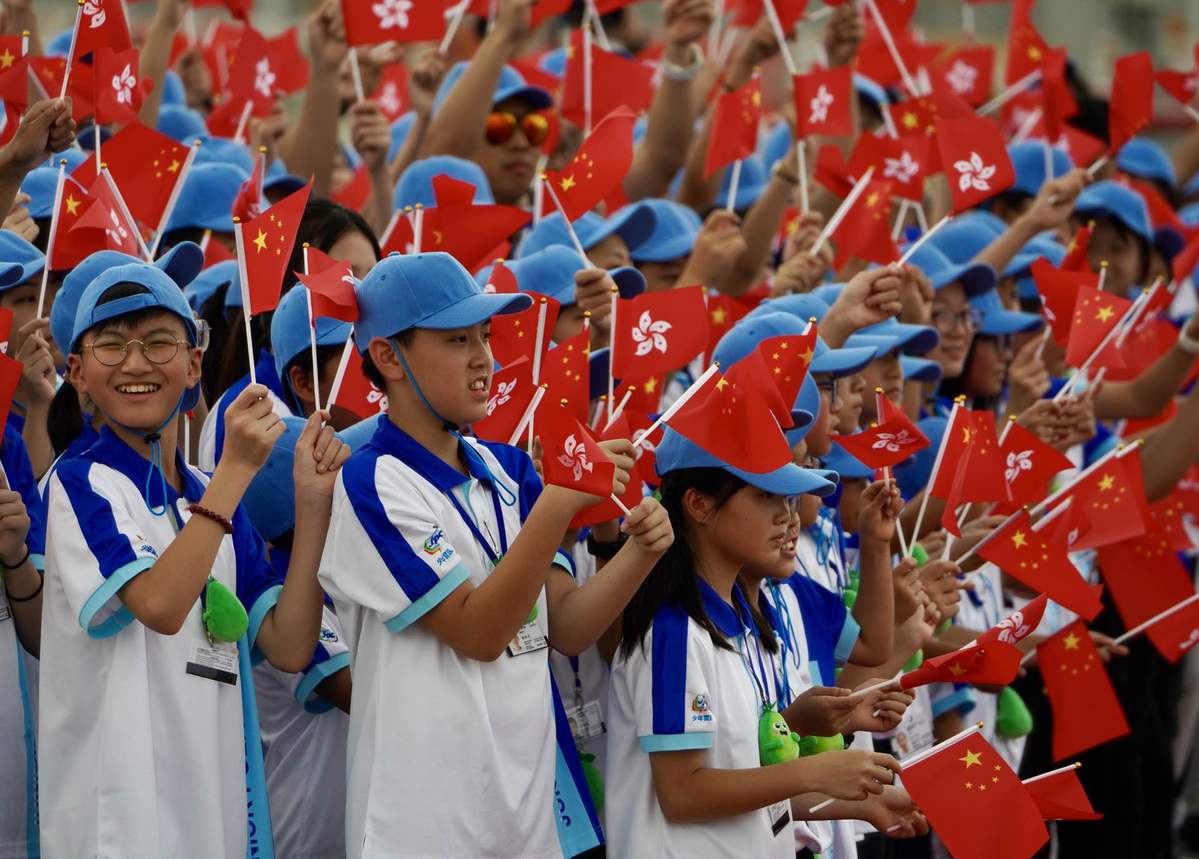
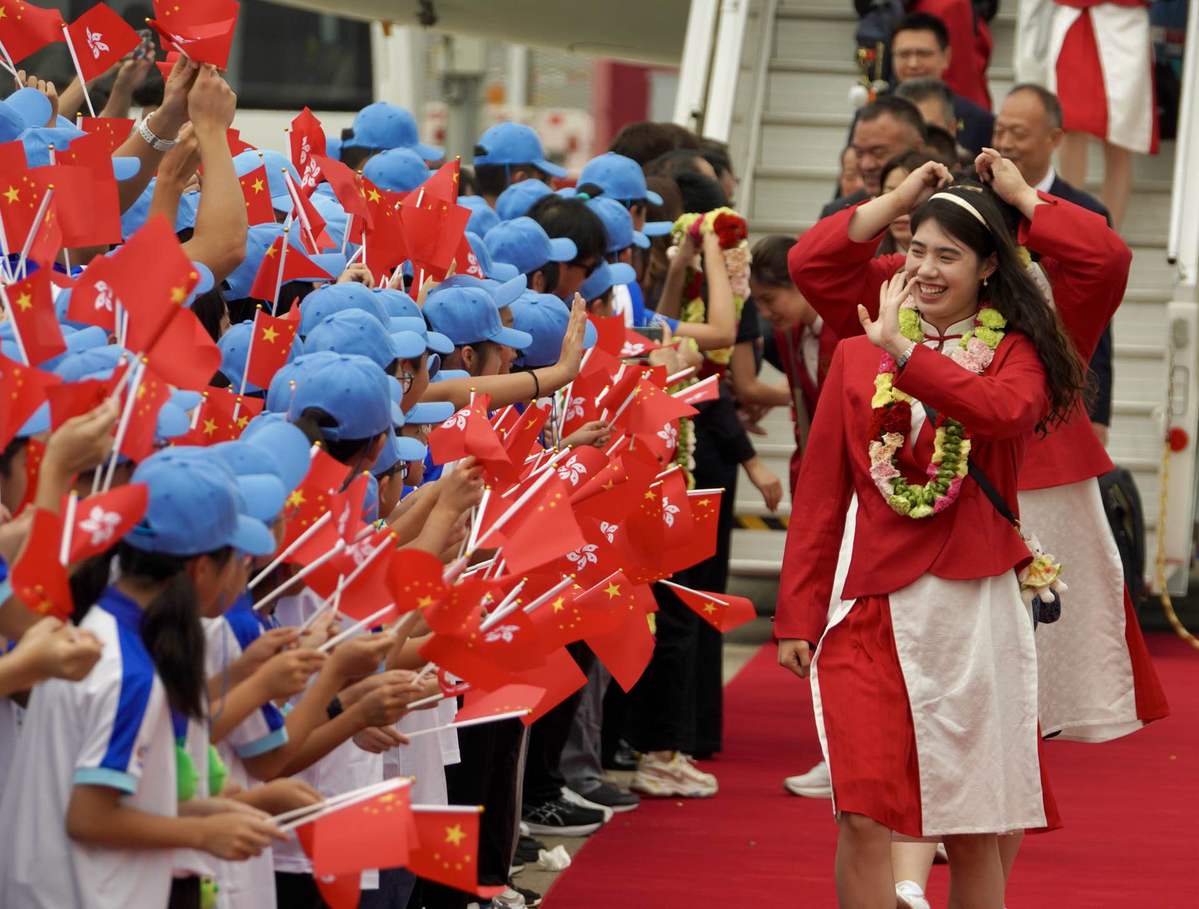
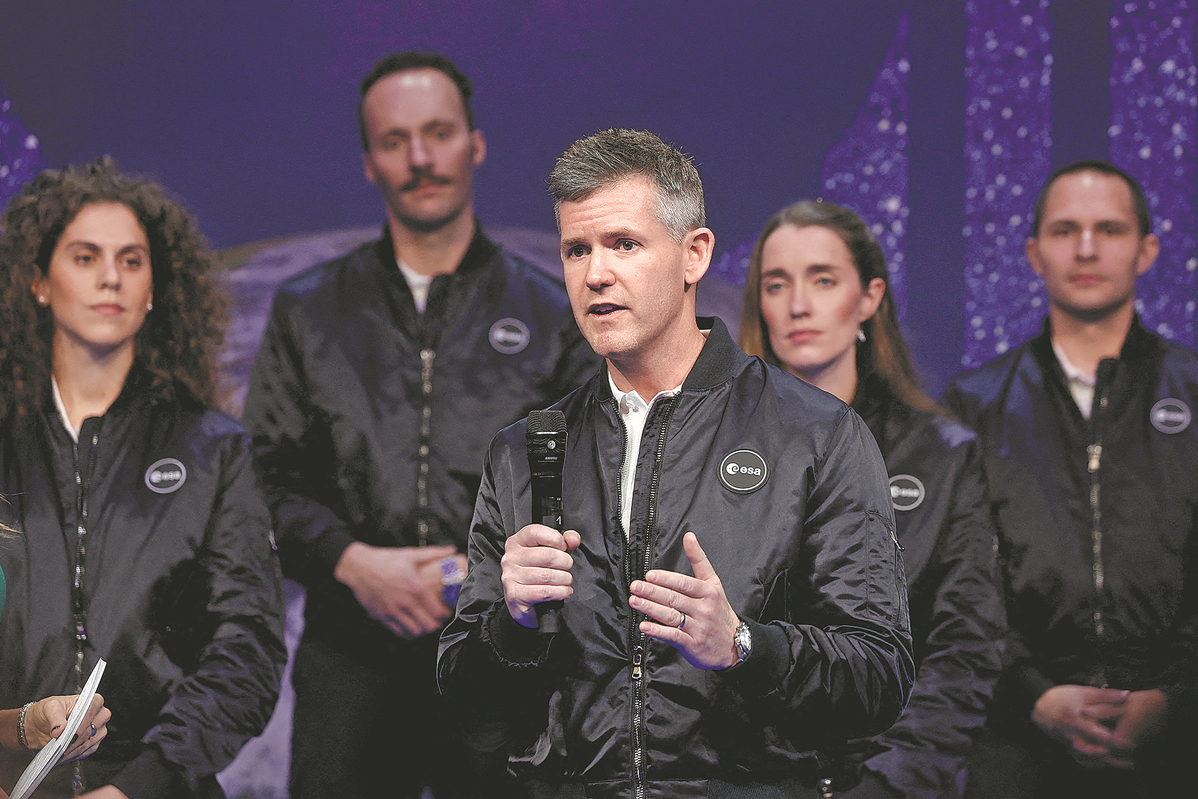
PARIS — Paralympic bronze medalist John McFall is keen to show how elite competitors can go on to break through ever more formidable barriers, and that it's possible to reach for the stars, whatever the circumstances.
He is a case in point, literally, as this week, the Briton became the first person with a physical disability to be effectively cleared for future missions by the European Space Agency.
The 43-year-old surgeon, who medaled in the 100m at the 2008 Beijing Paralympics, is now in France to back the current crop of British athletes at the Paris Games.
"I think sport has been a hugely powerful vehicle for making people appreciate what anybody is capable of. But, now that we have Paralympic sport on the radar much more, it's a really, really powerful platform to show what people with physical disabilities are capable of," he said in an interview.
McFall was visiting Thailand at the age of 19 when a motorcycle accident led to the amputation of his right leg above the knee and ended his hopes of a career in the army.
"I went through some dark times during those early days, but largely frustration, because I needed something to quench that appetite I had for challenge and achieving. And for me, the natural choice was sport.
"Challenging myself physically, I got reward from that, and that really was a very powerful vehicle for my rehabilitation," he told reporters.
"In the eight years that it took me from losing my leg to competing in Beijing, I learned a huge amount about myself — perhaps most importantly that, if I put the effort in, I can achieve whatever I want."
Now he is moving on to his next big challenge.
Three years ago, a colleague sent him an advert for would-be astronauts, including someone to take part in a European study on whether a person with a physical disability could become a full crew member on the International Space Station.
"I thought it sounded like such a tremendously interesting and exciting opportunity, not just from a personal point of view, but also from a sociological point of view. It was very interesting what the European Space Agency was proposing to do and to challenge," he said.
Last month, McFall was declared on track to becoming the world's first "parastronaut" after passing months of rigorous testing on his ability to carry out emergency procedures in orbit, and the way he would move and stabilize himself in microgravity.
Studies included the impact on bone density and the way fluid shifts around the body in microgravity, potentially affecting the fit of the prosthesis that he would wear on the ISS.
He has yet to be guaranteed a specific flight, but the ESA said in July that the study, which is due to be completed later this year, had demonstrated that it would be technically feasible for an astronaut with a physical disability like McFall's to travel to space.
Although the ESA has officially used the term "parastronaut" the moniker is not one that McFall himself encourages.
If approved for a mission to the International Space Station, he will carry out his duties just like any other crew member — in the same way that he is a normal medic or father, rather than a "para-surgeon or paradad," he said.
McFall hopes his experience, and that of the 4,000 athletes competing at this week's Paralympics, will send an encouraging message to others facing any kind of life-altering circumstances.
"What I would say to people who have any kind of trauma like this, or have a life-changing event like this, is whatever it may be, find something that you are passionate about, because that's what's going to give you the reward, and that's what's going to help you to re-establish that sense of self," he said.
"I am but one person. You're about to see hundreds of them competing at the highest level in the next couple of weeks."
Reuters

PARIS -- French President Emmanuel Macron declared the Paris 2024 Paralympic Games open on Wednesday evening at Place de la Concorde.
This is the first time that France has hosted the Paralympic Summer Games, and is also the first time that a Paralympics opening ceremony has taken place outside a stadium, in the heart of the host city.
The athletes paraded from the bottom of the Champs-Elysees and made their way around the stage area, greeted by the Phryges, mascots of the Games.
The opening ceremony on the theme of "Paradox" told the story of two groups moving from discord to concord.
"The aim of this ceremony is to change the way we look at people with disabilities, and to oppose all preconceived opinions on these issues, but not in a vain and sterile opposition," said Thomas Jolly, artistic director of the Paris 2024 ceremonies.
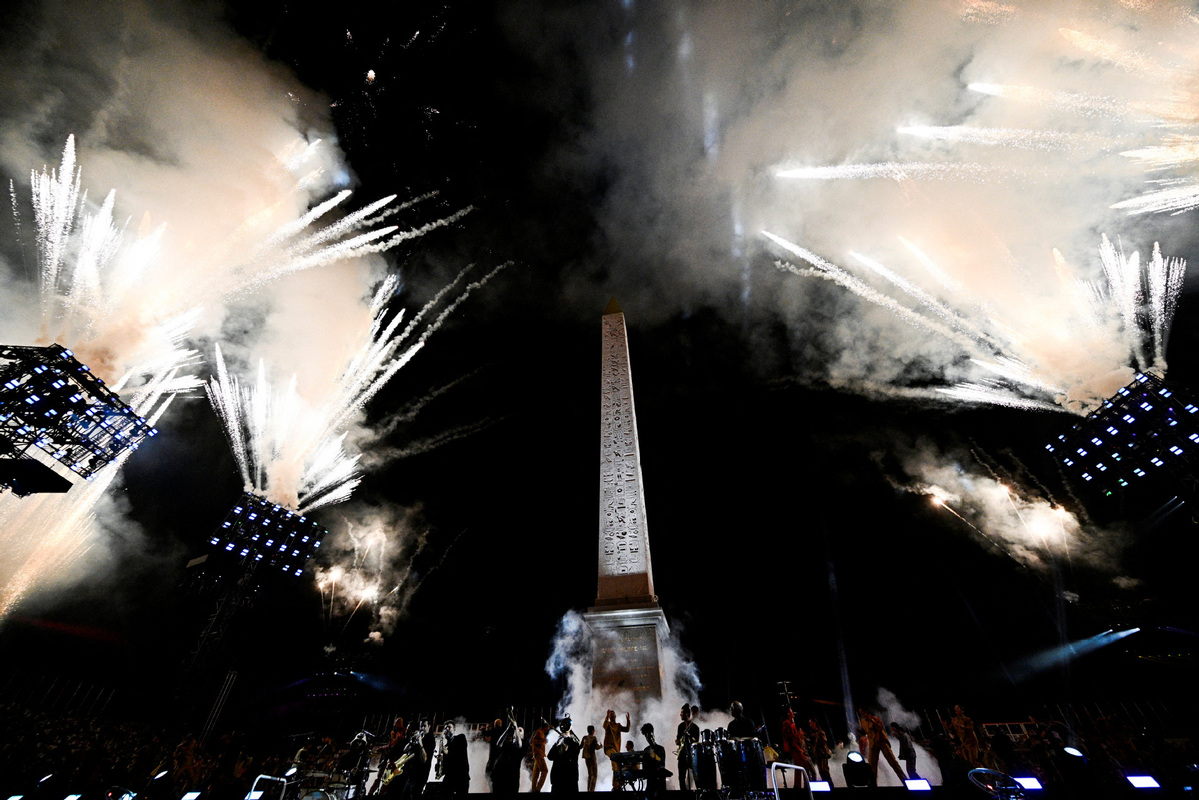
Around 4,400 athletes from a record 168 delegations will participate in the 11-day competition across 22 sports starting from Friday, with Eritrea, Kiribati and Kosovo making their Paralympic debuts.
China's delegation entered with wheelchair fencer Gu Haiyan and weightlifter Qi Yongkai carrying the flag together.
China has sent a delegation of 284 athletes - 126 males and 158 females - to compete across 302 events in 19 sports. Among them, 95 are first-time Paralympians.
48-year-old table tennis player Xiong Guiyan is the eldest athlete in China's delegation, while swimmer Zhu Hui, 15, is the youngest.
Since the Rio Games in 2016, a team of refugees has taken part in both Olympic and Paralympic Games.
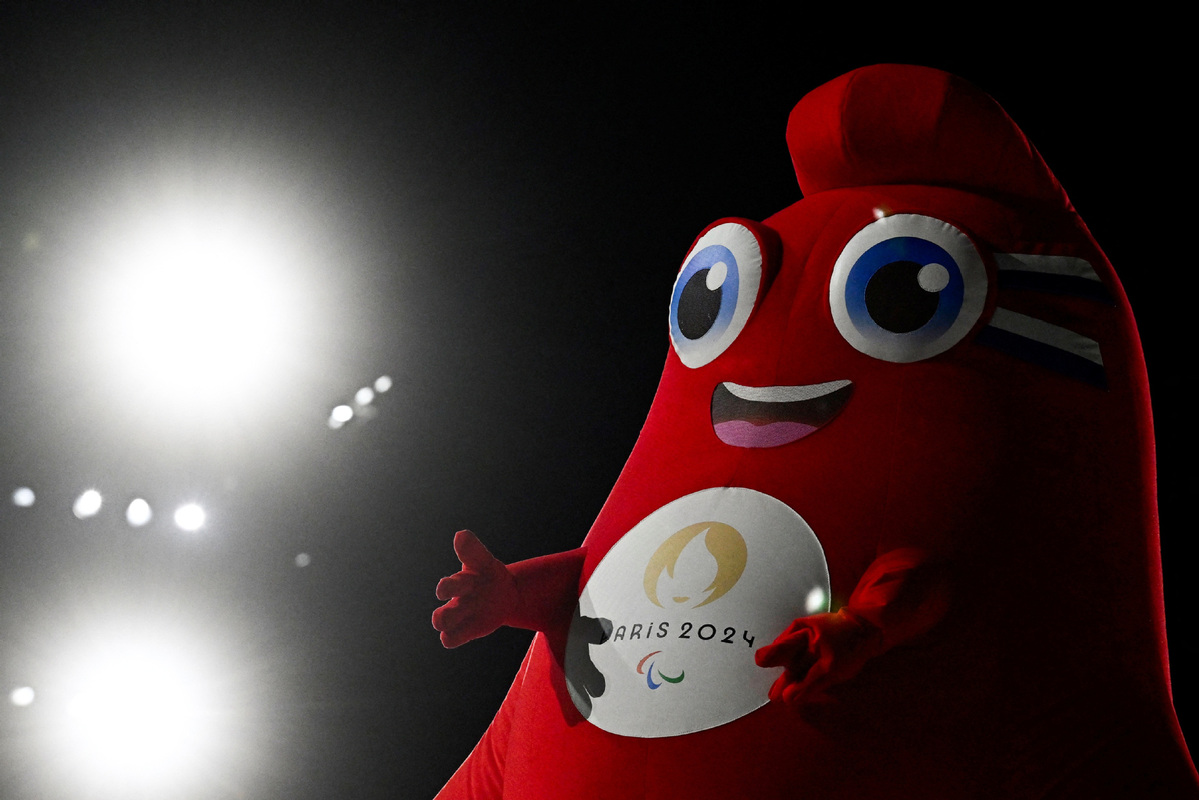
This time in Paris, eight athletes and one guide runner will compete as part of the largest-ever Refugee Paralympic Team. They are based in six countries and will compete across six sports.
France's delegation concluded the parade of athletes along the Champs-Elysees to Place de la Concorde.
Tony Estanguet, President of the Paris 2024 organizing committee, gave a speech to welcome the athletes.
"Even if all your life stories are unique, you have often lived with people listing all the things you are unable to do. Until the day you first entered a sports club. On that day, you understood that sport would not impose any limits. On that day, you understood that sport would never put you in a box. Like all athletes, you trained, you sweated, you failed and you got back up again. And you became the great champions that we are honored to have with us tonight."
International Paralympic Committee president Andrew Parsons followed with a speech of his own.
"At a time of growing global conflict, increasing hate, and rising exclusion, let sport be the social glue that brings us together," he said.
"Every person with a disability deserves the opportunity to thrive and live life free from barriers, free from discrimination and free from marginalisation," he added.
After the final relays in the Tuileries Garden, five torchbearers lit the Paris 2024 cauldron together. The cauldron rose into the sky once again, heralding the return of the Games.
